Best Group Nicknames in Sports
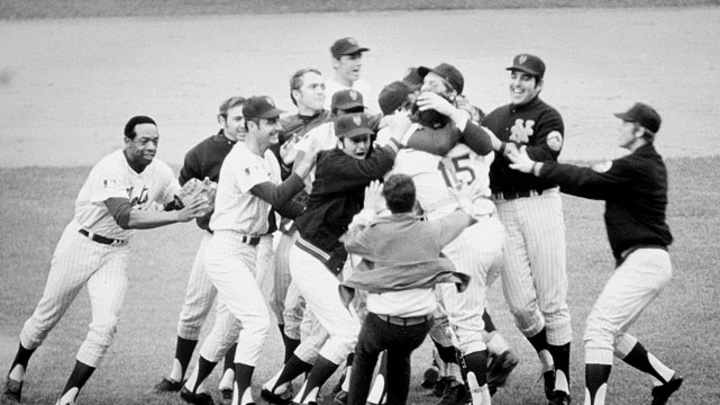
Best Group Nicknames in Sports
Amazin' Mets

The New York Mets franchise got off to an inauspicious start, finishing no better than ninth in the 10-team National League during their first seven seasons on play. After starting off the 1969 season 18-23, the Mets caught fire, winning 82 of their final 121 games including 24 of their last 32. New York won the National League East in the inaugural season of divisional play and continued its hot streak in the playoffs en route to a World Series. Not bad for a team that lost 101 games two seasons earlier.
Bad Boys
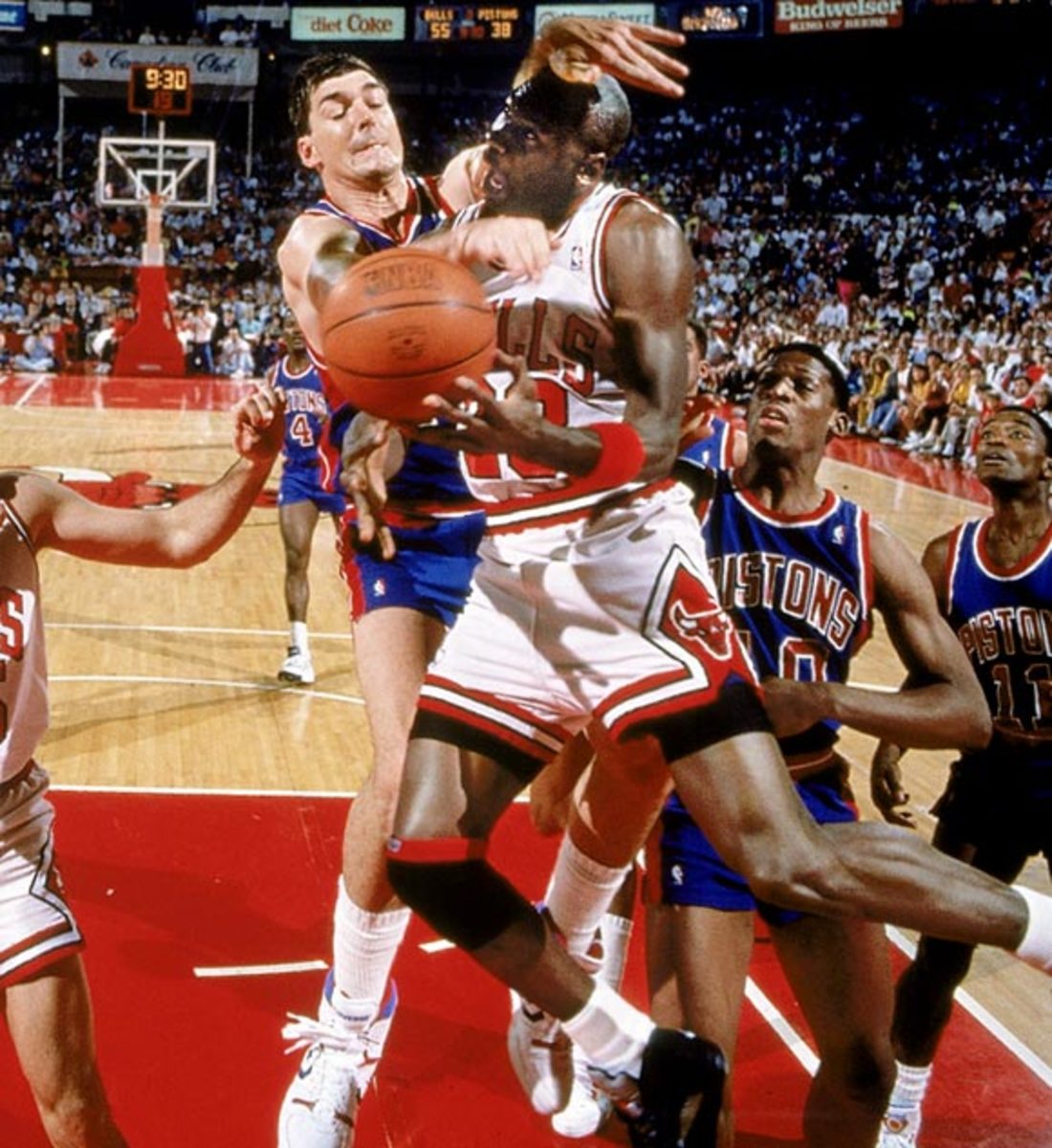
Some said the Detroit Pistons of the late 1980s played dirty. Others said it was just aggressive. But either way, the Pistons were champions. Relying on physical defense, Bill Laimbeer, Isiah Thomas, Joe Dumars, Dennis Rodman and the rest of the Bad Boys pushed, shoved, elbowed and beat their opponents. Detroit defeated Michael Jordan's Bulls on the way to NBA titles in 1989 and 1990.
Bench Mob
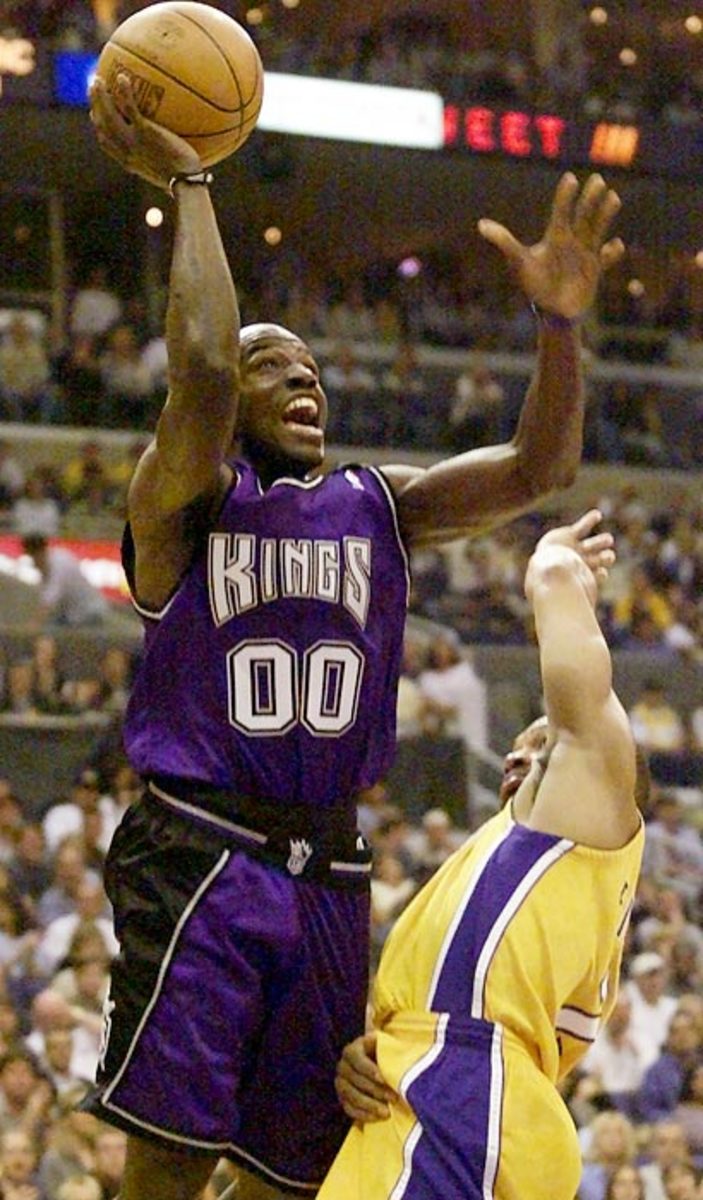
Sacramento had one of the NBA's top second units from 1999 to 2003, and the group played a role in one of the best runs in franchise history. The Bench Mob, which included Tony Delk, Tyrone Corbin, Bobby Jackson (Sixth Man of the Year in 2003), Scot Pollard and Jon Barry, among others, helped Sacramento to a league-best record and the Western Conference Finals in 2001-02.
Big Red Machine
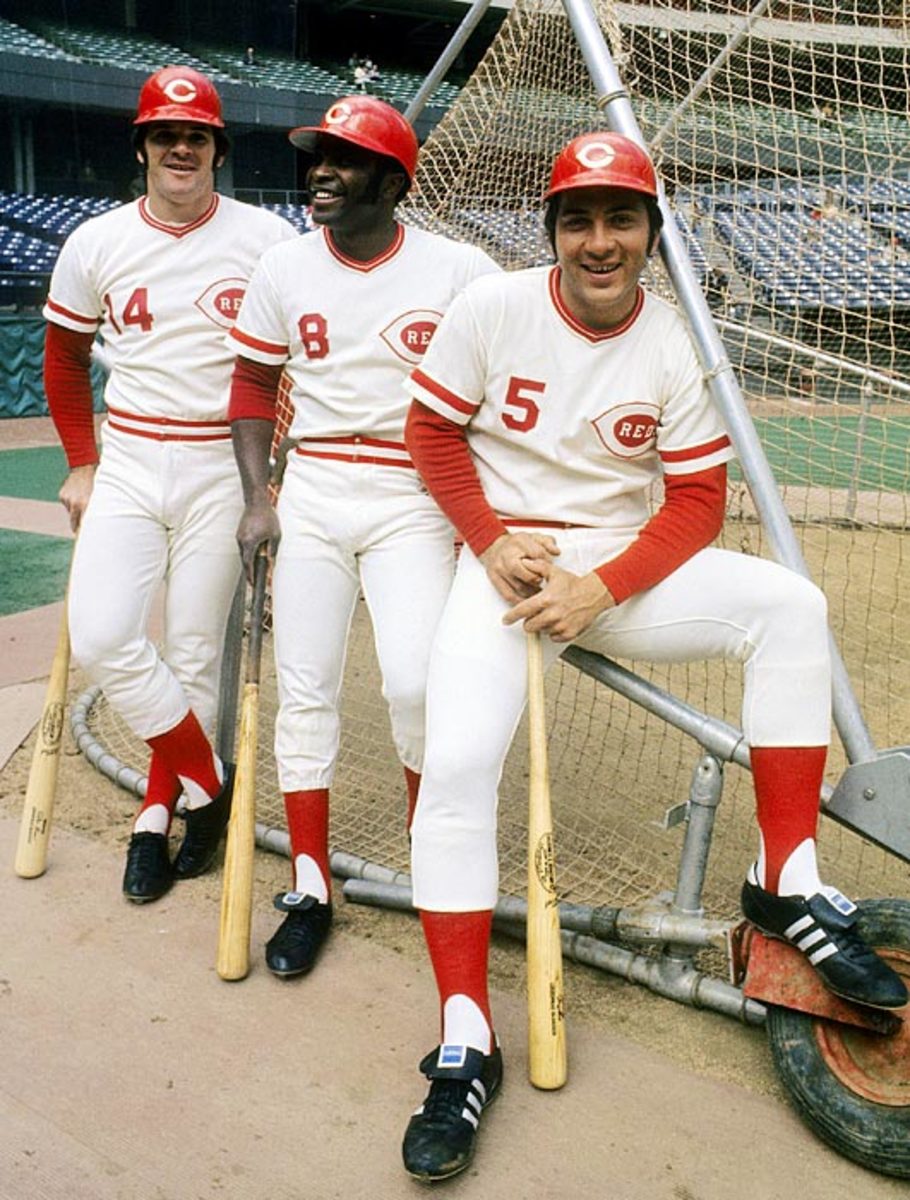
From 1970 to 1976, Cincinnati averaged 98 wins per season and won four pennants and two World Series titles (1975 and 1976). The 1976 team featured the "Great Eight" starting position players of Johnny Bench, Pete Rose, Joe Morgan, Tony Perez, Dave Concepcion, George Foster, Ken Griffey and Cesar Geronimo. Some consider that lineup to be the best lineup ever. When the "Great Eight" started together, the team had a .784 winning percentage.
The Big Three
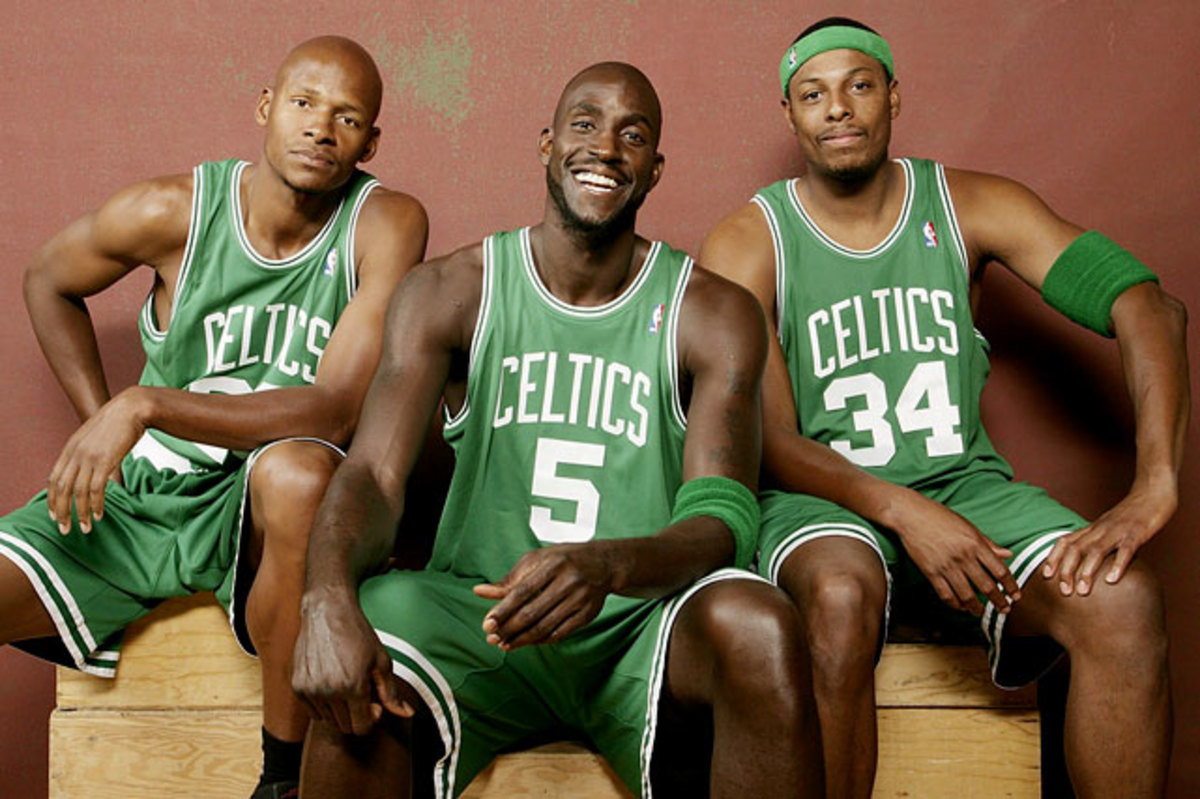
In a pair of blockbuster deals, general manager Danny Ainge assembled an elite trio to lead the 2007-08 Boston Celtics. Ainge first acquired Seattle SuperSonics sharpshooter Ray Allen with a draft night deal, and then procured 2004 MVP Kevin Garnett from the Minnesota Timberwolves. The two star acquisitions combined with long-time Celtic Paul Pierce to spark the largest one-year improvement in NBA history, finishing the 2007-08 season 66-16, 42 games better than the prior season's Celtics. The Big Three capped off the season with a championship and made another NBA Finals appearance in 2010.
Black Sox
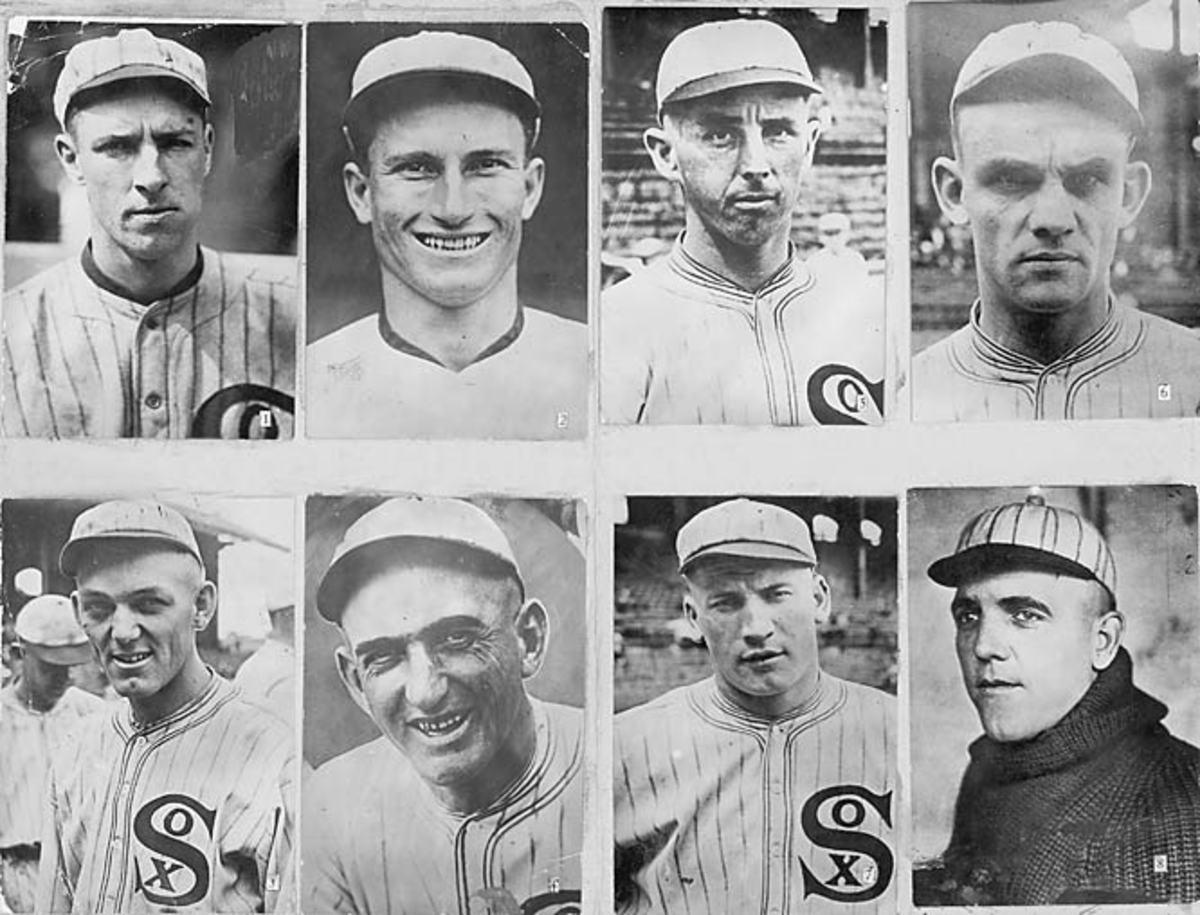
This nickname for the 1919 White Sox came from an incident that led to life-time bans for eight players and left a black mark on baseball. The Black Sox scandal involved Chicago players throwing the World Series to the Cincinnati Reds in exchange for money from gamblers. Players banned included first baseman Arnold "Chick" Gandil, pitcher Eddie Cicotte and outfielder Shoeless Joe Jackson (whose involvement has been disputed).
Broad Street Bullies
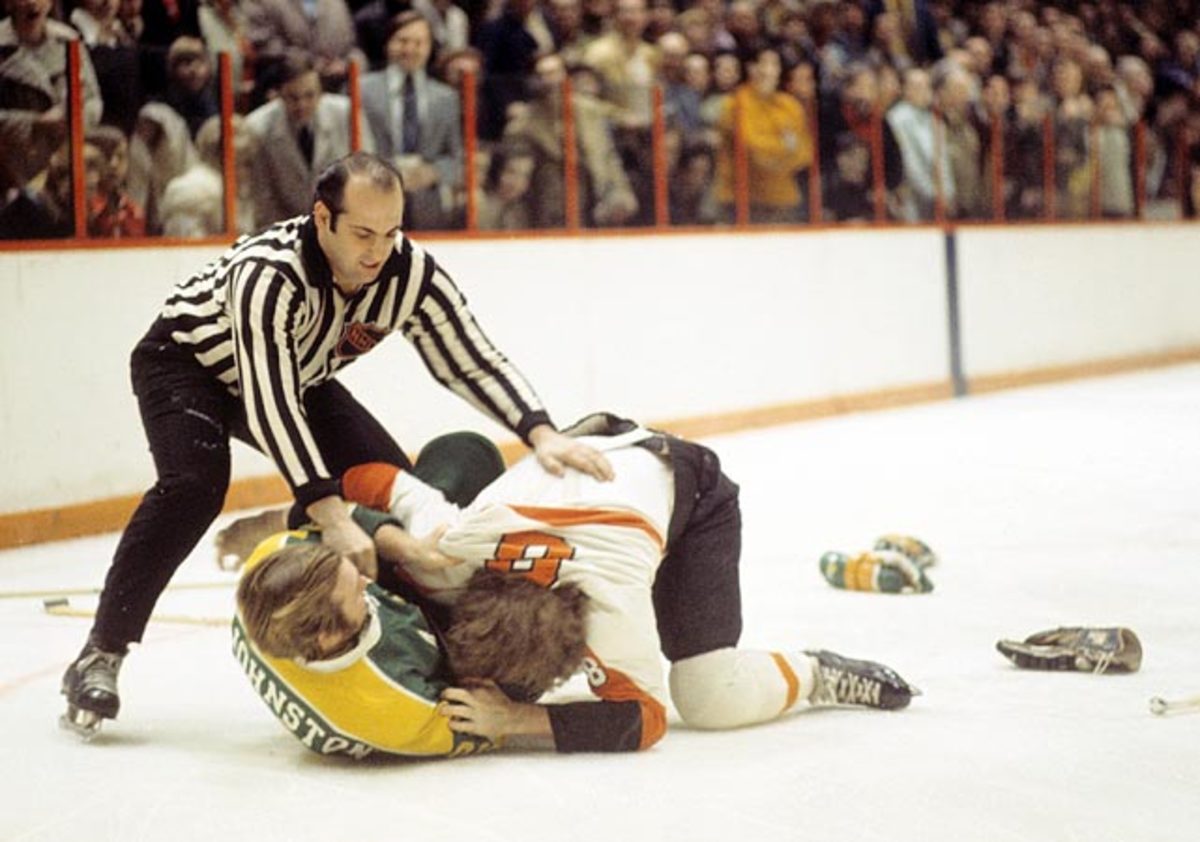
No one personified the hard-hitting Flyers of the 1970s more than Dave "The Hammer" Schultz. He set a record for penalty minutes in a season with 348 in 1973-74, only to top it a year later with 472. Philadelphia won the Stanley Cup in each of those seasons behind intimidating defense and the superb goaltending of Bernie Parent.
Doomsday Defense
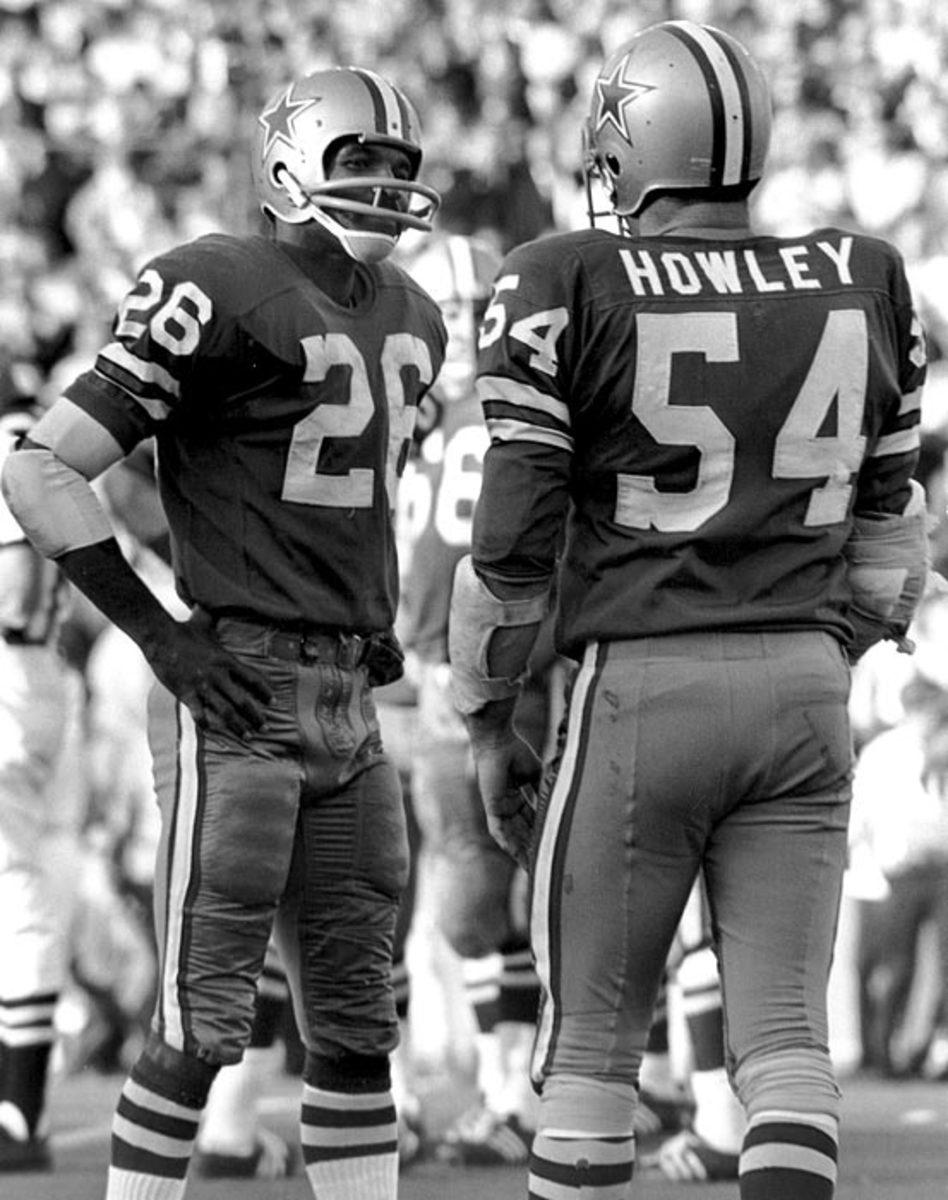
The Dallas Cowboys' defense earned its nickname as it keyed a run to five Super Bowls between 1971 and 1979 (including wins in 1972 and 1978). The unit may never have been better than in the 1972 title run. It held its three playoff opponents to a combined 18 points, including a 24-3 win over Miami in the Super Bowl. The original Doomsday Defense was led by cornerbacks Herb Adderley, Mel Renfro and linebackers Chuck Howley, Dave Edwards and Lee Roy Jordan.
Dream Team
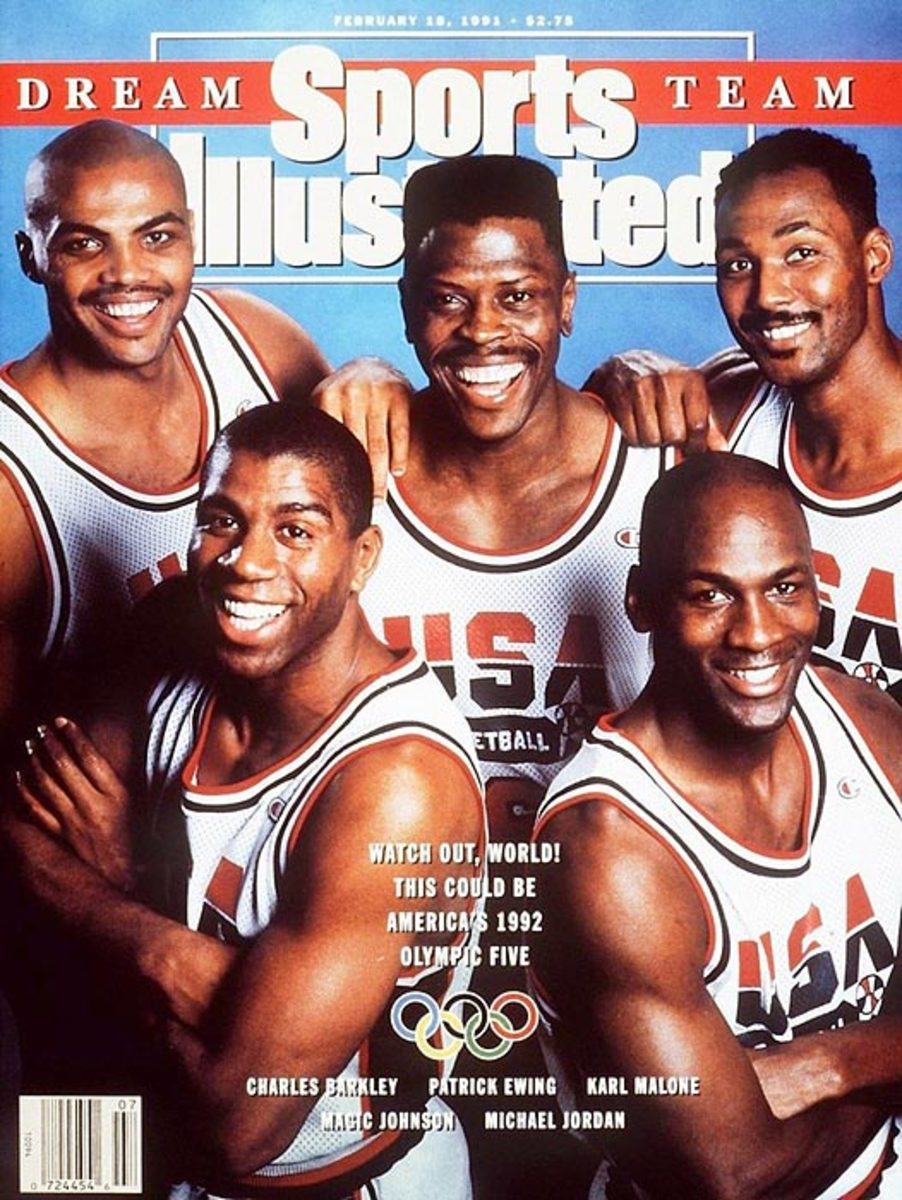
After a 1989 change in FIBA laws opened the doors for professional basketball players to compete in the Olympics, the "Dream Team" was promptly assembled for the 1992 Summer Olympics in Barcelona. Led by Magic Johnson and Larry Bird, the Americans were so dominant that their closest match -- the gold medal final -- was won by 32 points over Croatia.
Electric Company
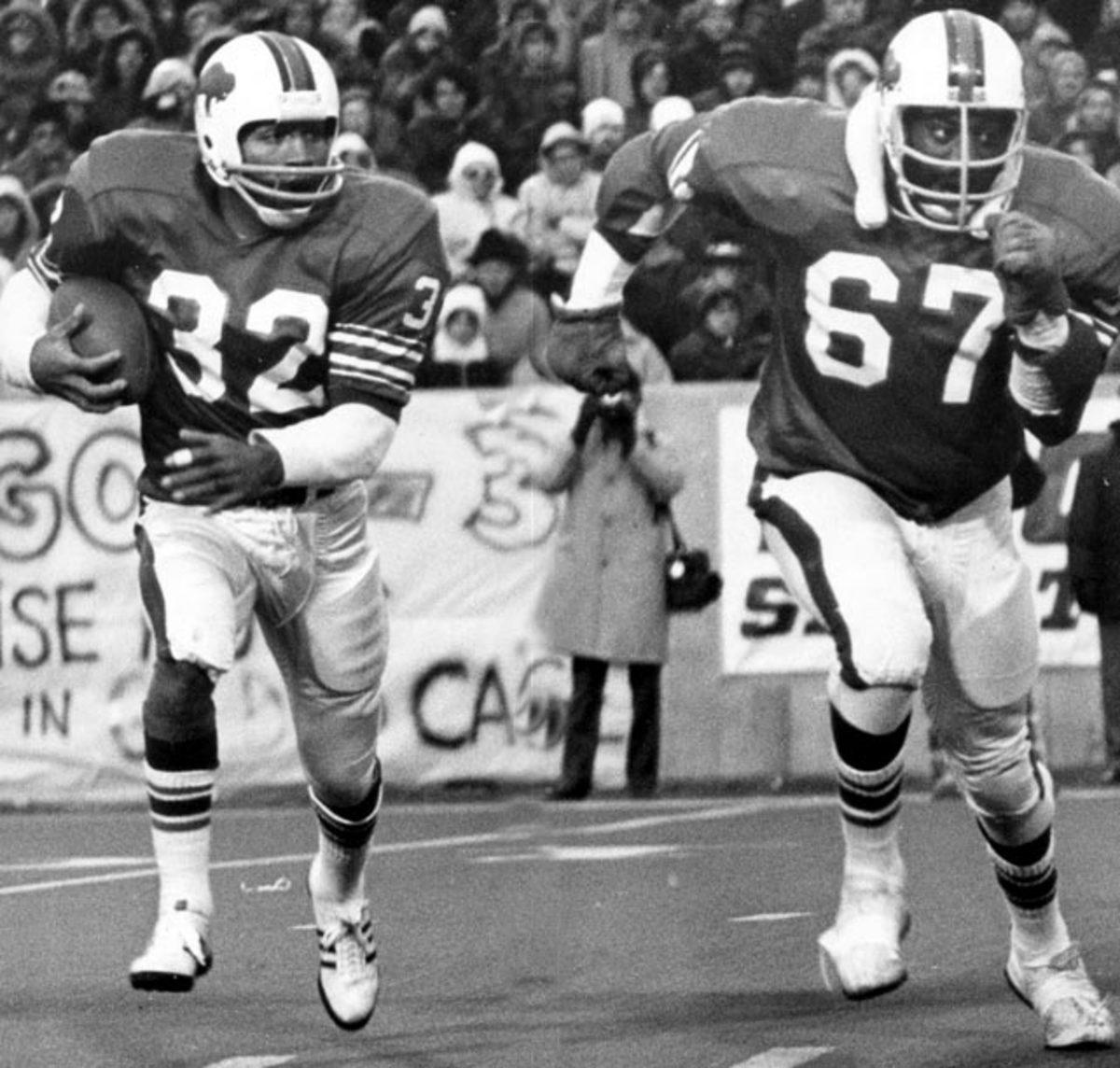
Back when he was famous only for his football skills, O.J. Simpson bestowed this nickname on his offensive line because they "turned on the Juice." Running behind Reggie McKenzie, Joe DeLamielleure, Mike Montler, Dave Foley and Donnie Green, Simpson led the league in rushing four times. In 1973, he broke the single-game rushing record and became the first player to total 2,000 yards in a season.
Evil Empire

Red Sox president Larry Lucchino reacted to the Yankees' 2002 acquisition of Cuban free agent Jose Contreras by saying "The evil empire extends its tentacles even into Latin America." Little did he know the moniker would become legally binding. A company named Evil Enterprises Inc. began seeking trademark rights for the phrase "Baseball's Evil Empire" in 2008, leading a panel of judges in Washington D.C. to rule in 2013 that "there is only one Evil Empire in baseball and it is the New York Yankees."
Fab Five
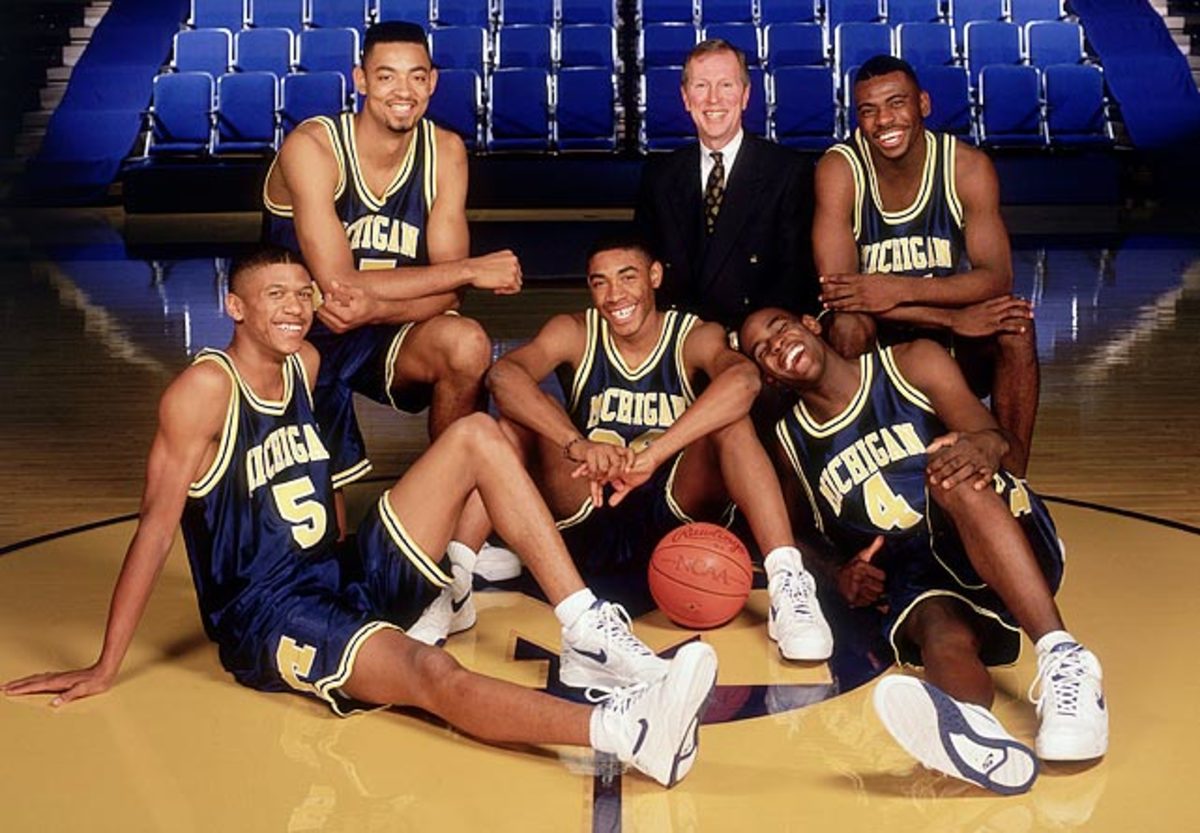
Bringing baggy shorts, trash talk and hip hop flair to college basketball, the group -- considered by some to be the best recruiting class ever -- led Michigan to the national championship game in 1992 and 1993. Chris Webber, Juwan Howard, Jalen Rose, Jimmy King and Ray Jackson were all among the nation's top-100 recruits (and all but Jackson was ranked in the top nine).
Fearsome Foursome
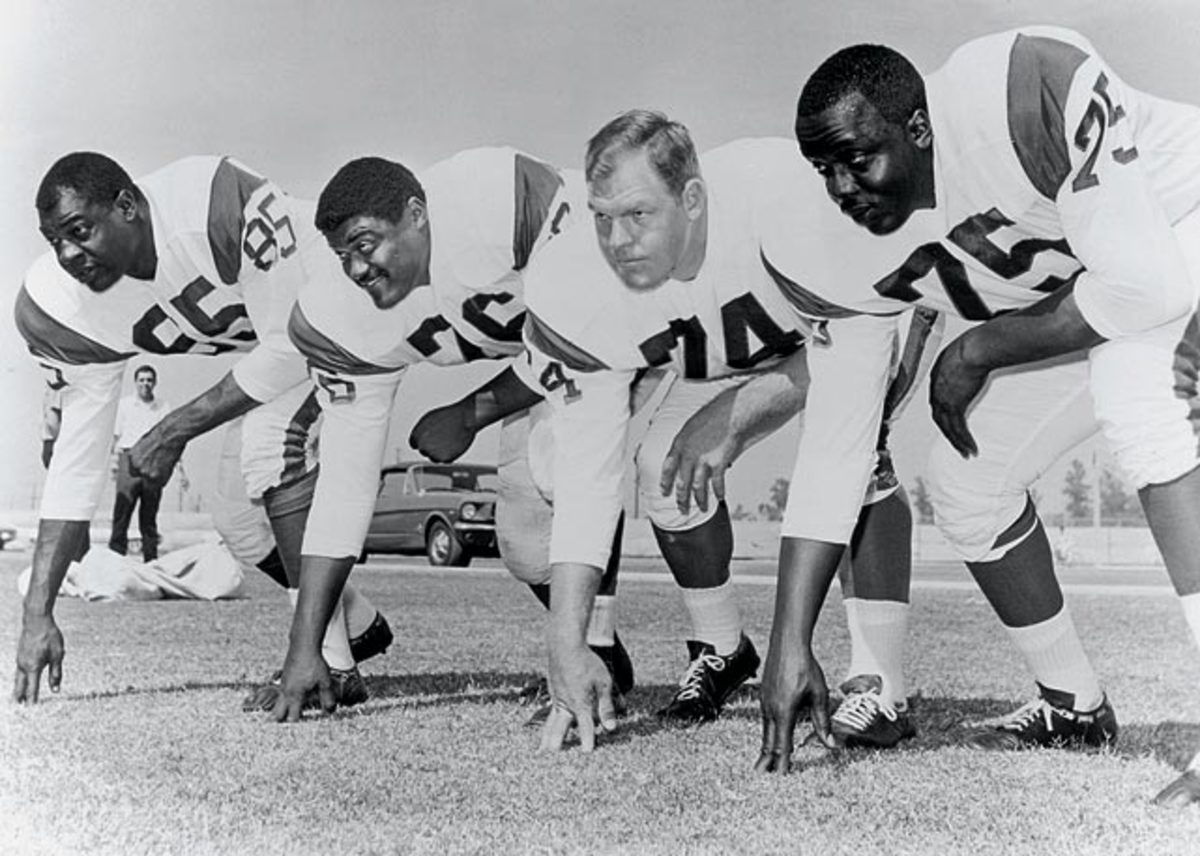
The Los Angeles Rams had two future Hall of Famers on its defensive line in the'60s with the Fearsome Foursome. The quartet, comprised of Rosey Grier, Deacon Jones, Lamar Lundy and Merlin Olson, imposed their will on opposing offenses.
Fierce Five

Living up to their name and the lofty hype surrounding them, the Fierce Five -- Gabby Douglass, McKayla Maroney, Aly Raisman, Kyla Ross and Jordyn Wieber -- became the second U.S. women's gymnastics team to win Olympic gold, claiming the top of the podium at the 2012 Summer Olympics. Originally known as the Fab Five, the group opted for an adjective change after Jalen Rose of the famous Michigan basketball Fab Five complained. Maroney and Wieber chose "fierce" because they said it described their floor routines.
Four Horsemen

Famed sportswriter Grantland Rice coined the term in 1924 to describe the hard-running Notre Dame backfield of quarterback Harry Stuhldreher, fullback Elmer Layden and halfbacks Jim Crowley and Don Miller. The name stuck thanks in part to a student publicity aide who posed the players atop four horses, in full uniform. The group helped carry Knute Rockne's team to a 10-0 record and national championship.
French Connection

The iconic Sabres' line of Rick Martin, Gilbert Perreault and Rene Robert brought scoring flair and Fu Manchu mustaches to Buffalo from 1972 to 1979. All three were French Canadians from Quebec, and they teamed to lead the Sabres to the 1975 finals, where they lost to the Flyers in six games. Buffalo made the playoffs in all but one of the trio's seasons together.
Gashouse Gang
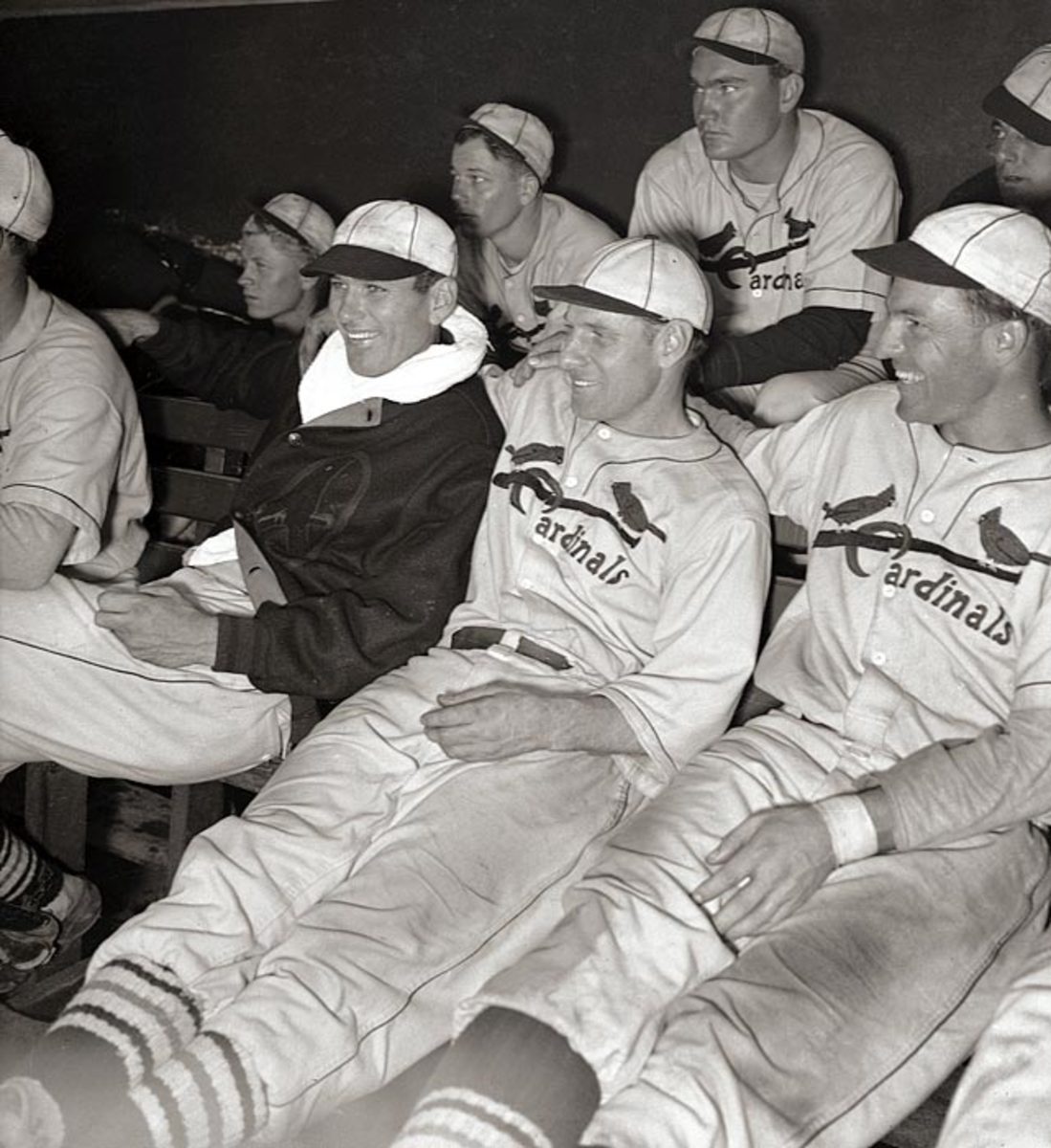
The 1934 Cardinals took the field in unwashed uniforms and earned their nickname from the unpleasant smell. But they also played good baseball. St. Louis won 95 games and took the World Series over Detroit. Dizzy Dean won 30 games, and hard-nosed players like Leo Durocher, Pepper Martin and Ripper Collins led the scrappy ballclub.
Greatest Show on Turf
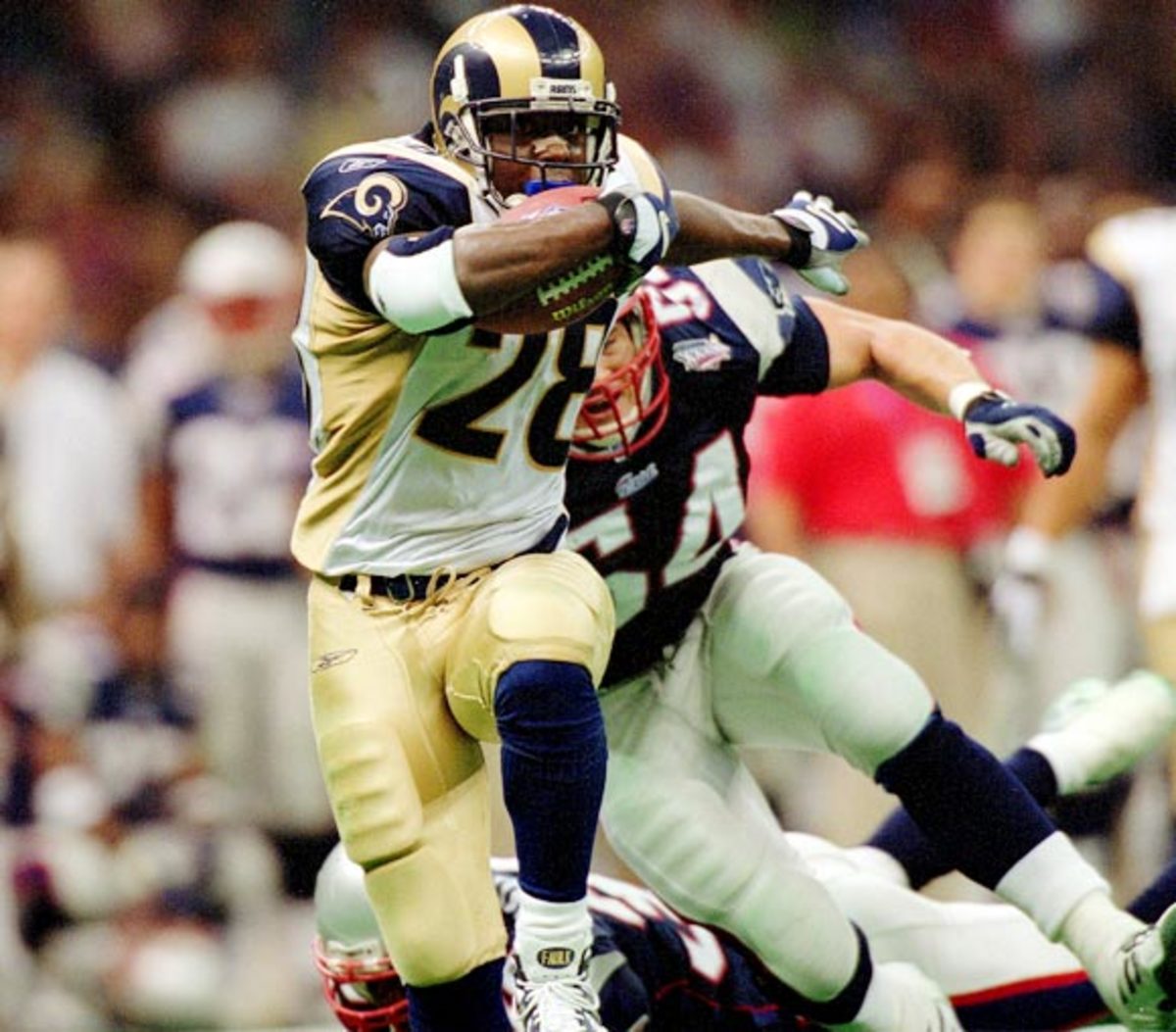
Three of the 11 teams in NFL history to score more than 500 points in a season, the 1999, 2000 and 2001 Rams combined a potent passing attack with an explosive ground game. Behind Kurt Warner, Marshall Faulk, Torry Holt and Isaac Bruce, St. Louis won the 2000 Super Bowl but lost to the Patriots as heavy favorites in 2002.
Harvey's Wallbangers
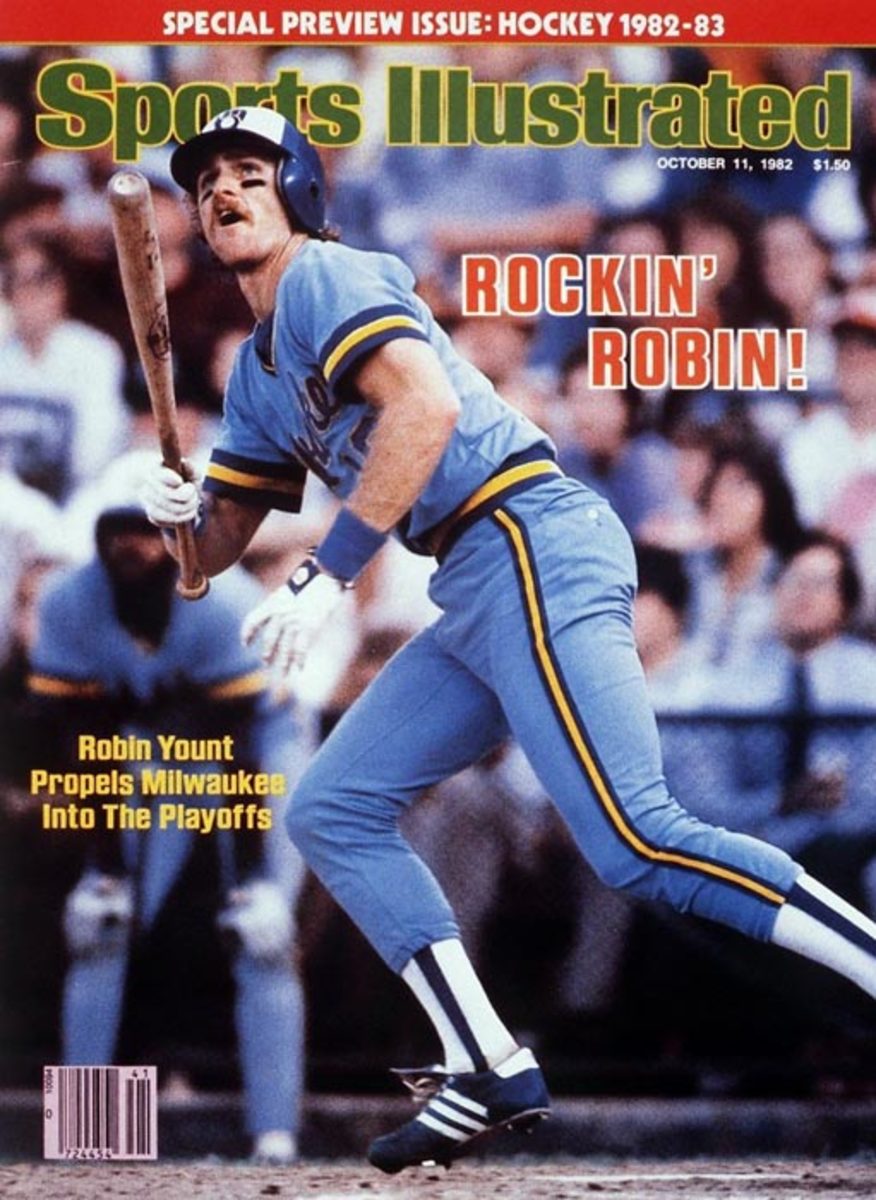
After manager Harvey Kuenn took over in June, the 1982 Brewers went from a 23-24 start to a 95-67 finish and the only World Series appearance in franchise history. The hard-hitting team, which included Cecil Cooper, Paul Molitor and Robin Yount, beat the California Angels in the American League Championship Series before falling in seven games to the St. Louis Cardinals. Kuenn earned the Manager of the Year award for his work.
Hogs
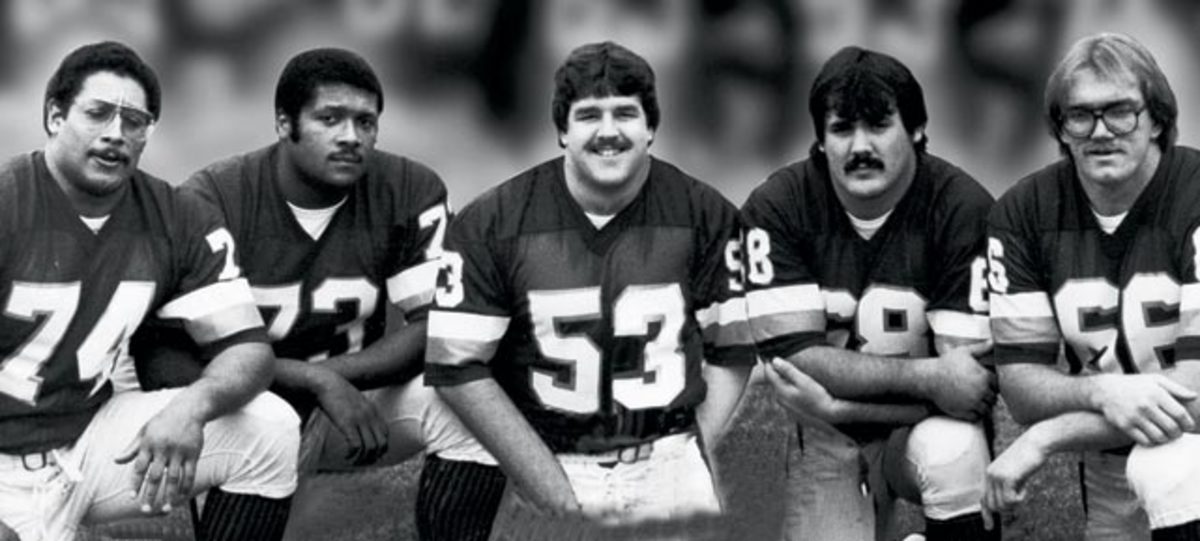
Redskins' offensive line coach Joe Bugel gave his unit this nickname during the 1982 training camp, and the Hogs' core of Jeff Bostic, Russ Grimm, Mark May and Joe Jacoby stayed together until the early 1990s. They played a key role in the strong rushing attack featuring John Riggins that helped the Redskins win three Super Bowls (and reach another) between 1983 and 1992.
Idiots

Maybe the Red Sox weren't smart enough to know any better. But the team outfielder Johnny Damon called the Idiots came back from a 3-0 deficit to stun the Yankees in the American League Championship Series. Then, they swept the Cardinals to win the franchise's first World Series in 85 years and lift the Curse of the Bambino.
Kardiac Kids
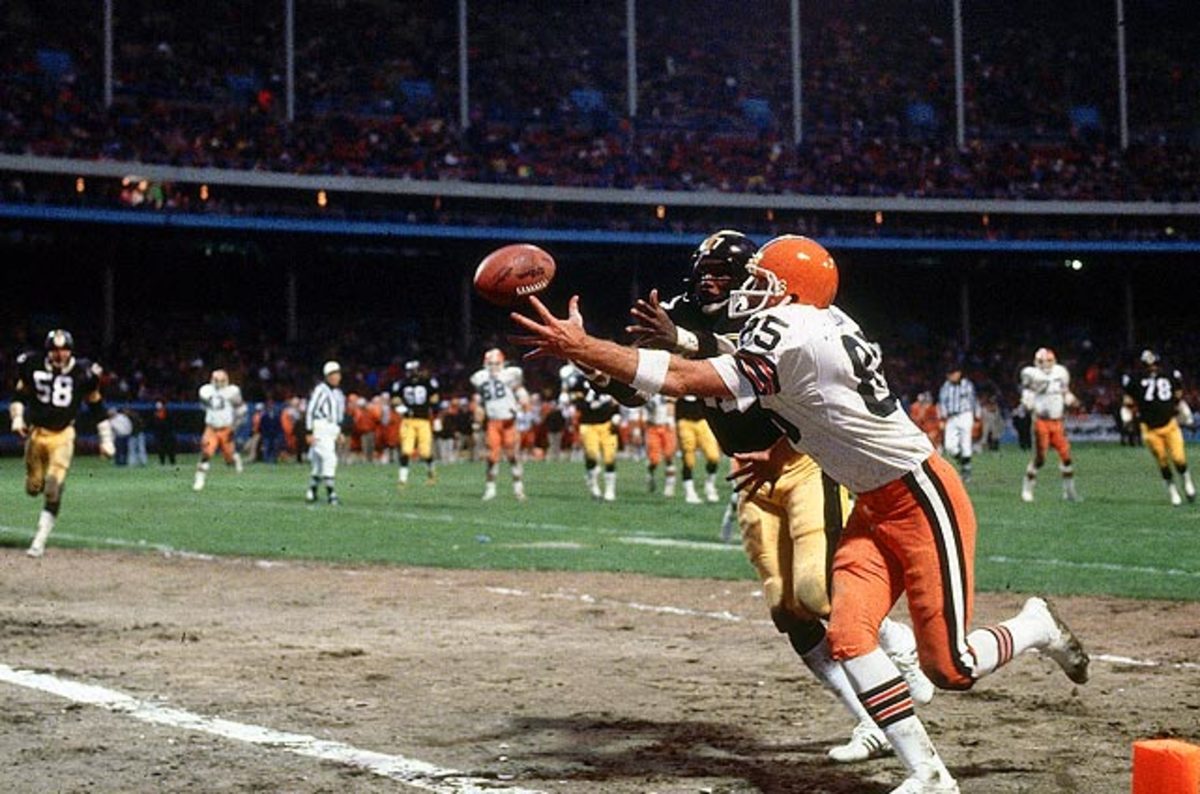
The 1980 Cleveland Browns' heart-stopping season included 12 games decided by a touchdown or less. After a pair of losses to start the season, Cleveland ran off 11 wins in its final 14 games to capture the AFC Central title. Among the wins was a 27-26 comeback victory over Pittsburgh, in which the Browns came back from a 26-14 deficit and the Cleveland defense stopped the Steelers in the final minutes. The team fell 14-12 to Oakland in its first playoff game.
Killer Bs
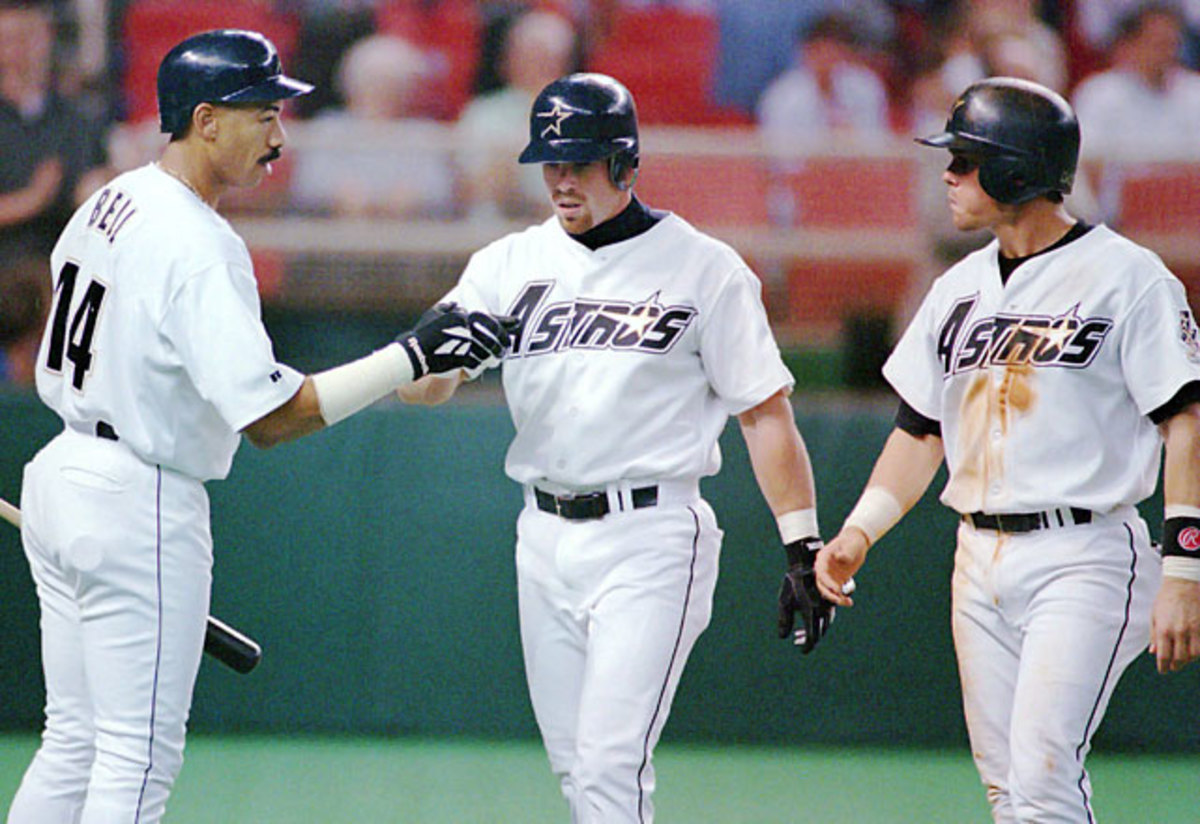
Although the exact makeup up the Houston Astros' Killer Bs changed over time, the nickname first appeared in 1996. Bagwell, Biggio, Bell and Berry beget Bagwell, Biggio, Bell and Berkman, who beget Bagwell, Biggio, Berkman and, for a season, Beltran. Regardless of the exact makeup, the Killer Bs intimidated opposing pitchers with Craig Biggio's knack for getting on base and roping doubles while Jeff Bagwell and Lance Berkman bombed homers.
Legion of Doom
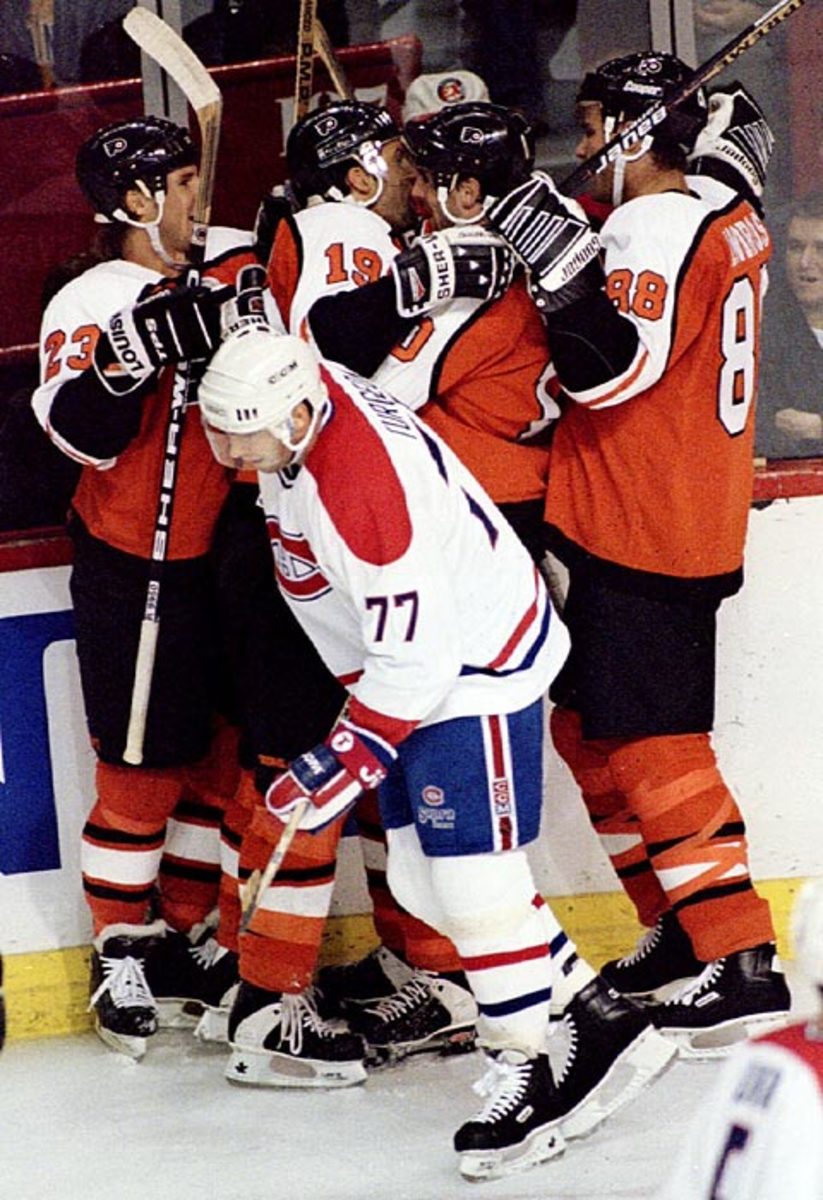
The Flyers suffered a second-half collapse in the 1993-94 season and slow start in 1994-95, but once the high-scoring, physical forward line of Eric Lindros, John LeClair and Mikael Renberg came together, Philadelphia took off. The trio was together for three years, including in 1997 when the team reached the Stanley Cup Finals. Lindros also earned the Hart Memorial trophy in 1995 as league MVP.
Monsters of the Midway
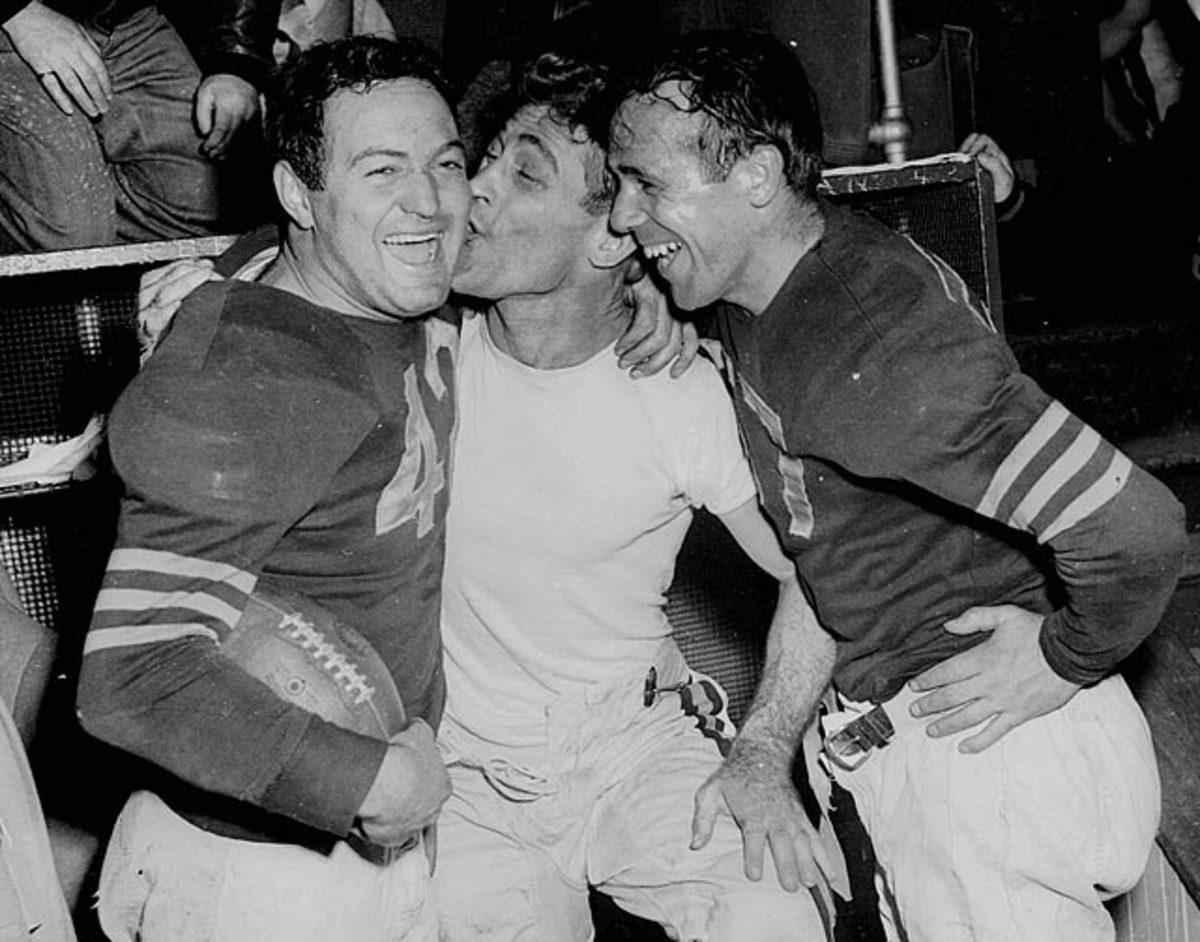
Although it later was used in reference to the 1986 Super Bowl champion Bears, the nickname first applied to the Chicago dynasty in the 1940s. Behind eight Hall of Famers, including Sid Luckman and Bronko Nagurski, the Bears powered their way to four NFL titles in seven years. In 1940, Chicago beat Washington 73-0 in the championship game, the biggest margin of victory in league history.
Murderers' Row
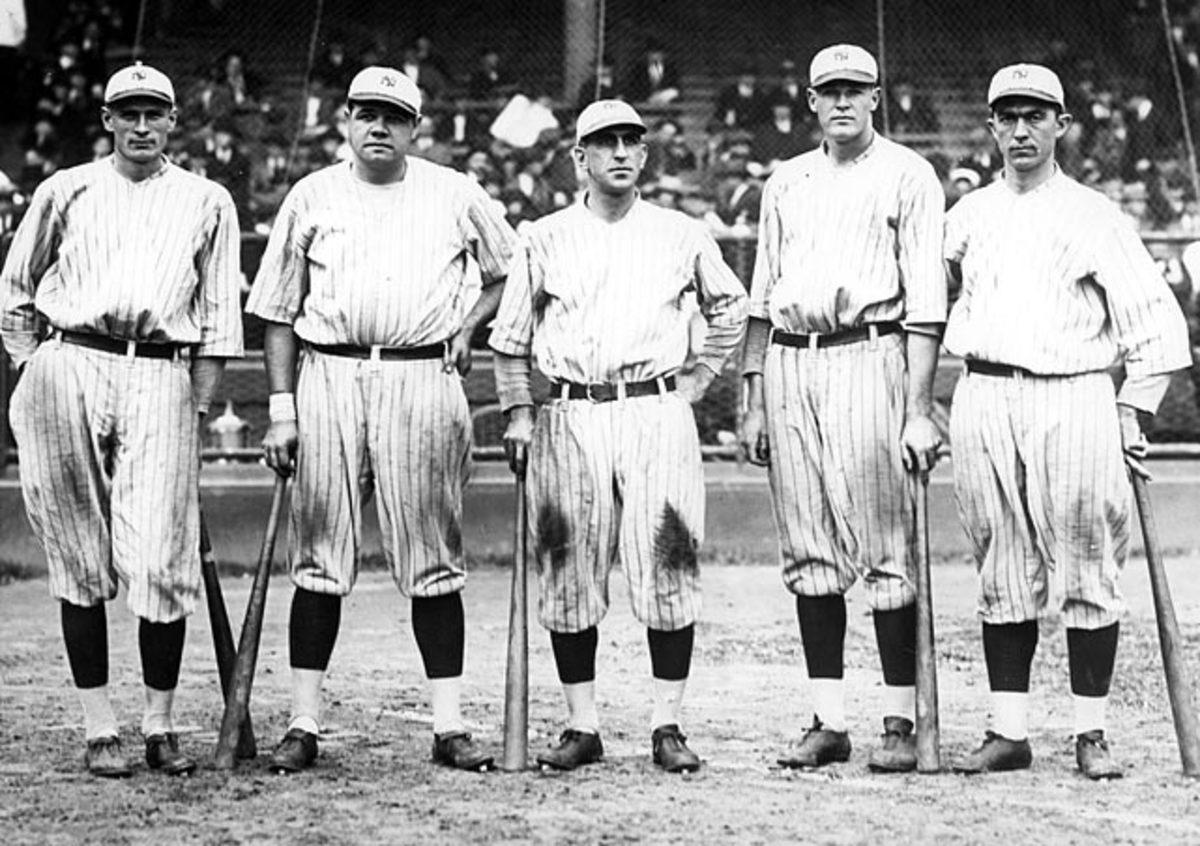
A pitcher's worst nightmare: the first six batters in the 1927 Yankees' lineup -- Earle Combs, Mark Koenig, Babe Ruth, Lou Gehrig, Bob Meusel and Tony Lazzeri. New York went 110-44 on the season and swept the Pirates in the World Series. The team is widely considered one of the best baseball teams ever, mostly for its potent lineup.
New York Sack Exchange
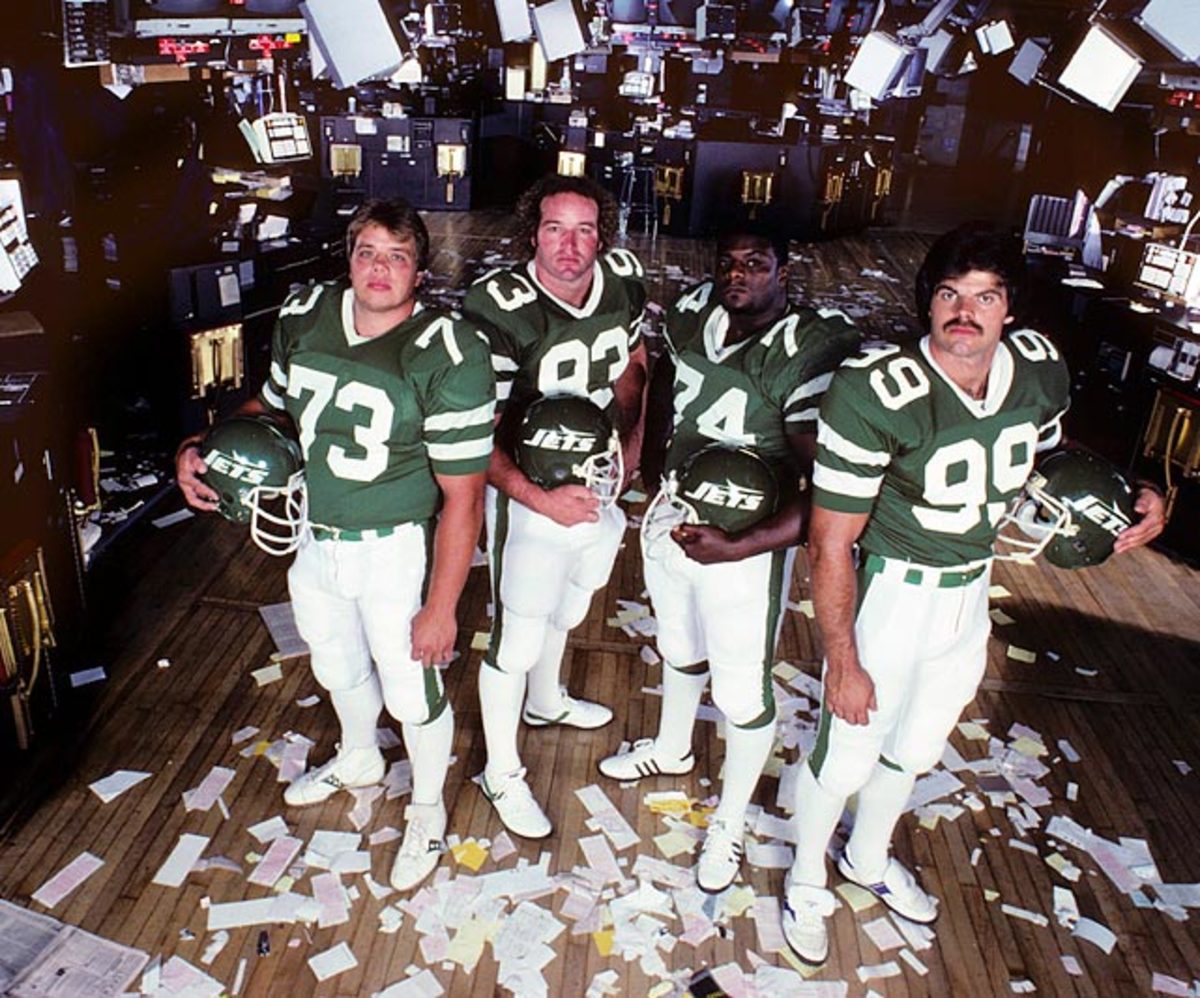
The Jets' defensive line of Mark Gastineau, Joe Klecko, Marty Lyons and Abdul Salaam was among the NFL's best in the early 1980s. The nickname came after the four rang the opening bell at the New York Stock Exchange in November 1981. During that season, the line combined for an unofficial total of 66 sacks (which didn't become an official NFL statistic until the following season). Gastineau's 22 sacks in 1984 was the NFL record until Michael Strahan bettered it in 2001.
No-Name Defense

The undefeated 1972 Dolphins had Bob Griese at quarterback, Larry Csonka and Mercury Morris at running back and Paul Warfield at receiver. But the defense, with virtually unknown players, was also crucial to their championship run. The No-Name Defense held opponents to 11 points per game during the season
Orange Crush
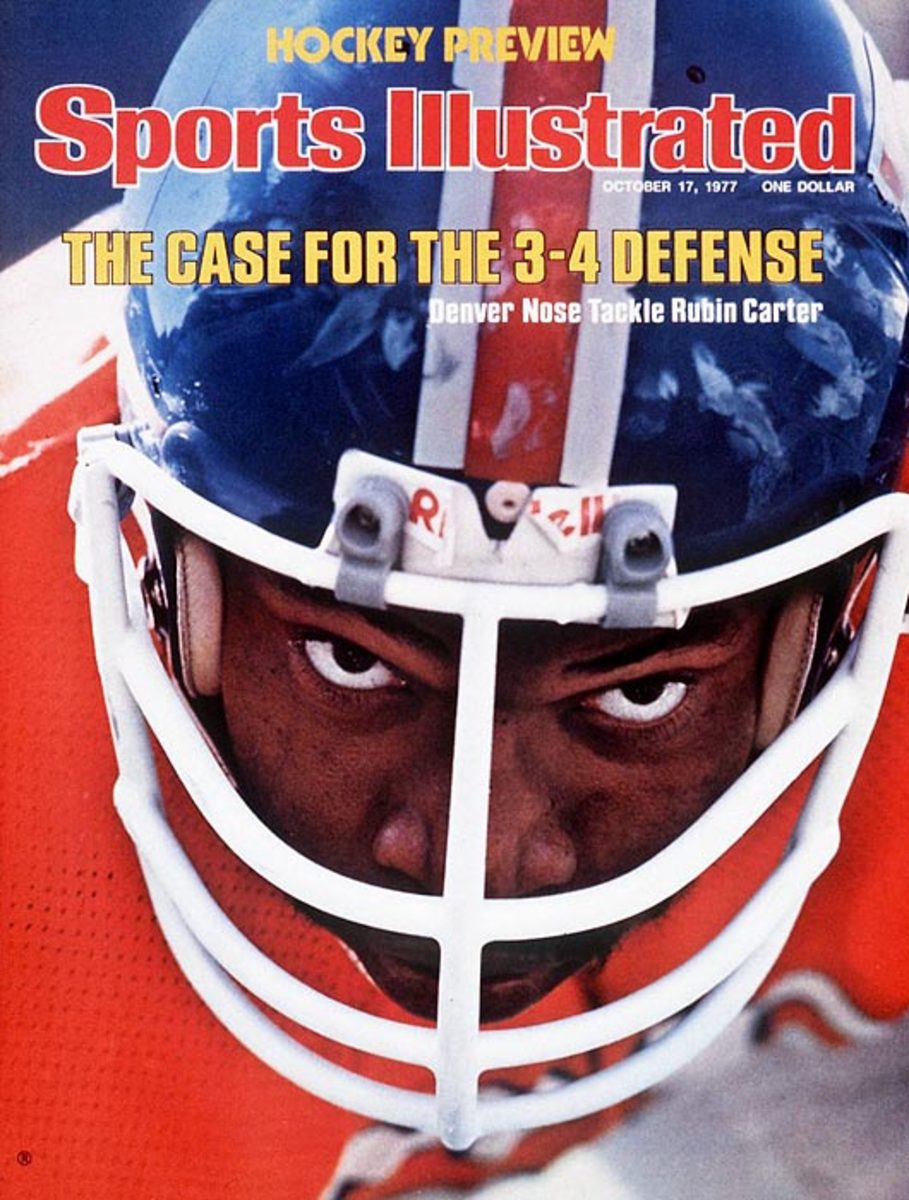
During the 1977 season, the Broncos' 3-4 defense carried the team to the Super Bowl, where it fell 27-10 to Dallas. The unit, which was led by linebackers Tom Jackson and Randy Gradishar, held opponents to 10.6 points per game. The nickname was given by a Denver-area distributor of Orange Crush soda, and it helped propel the Broncos to national recognition.
Over the Hill Gang
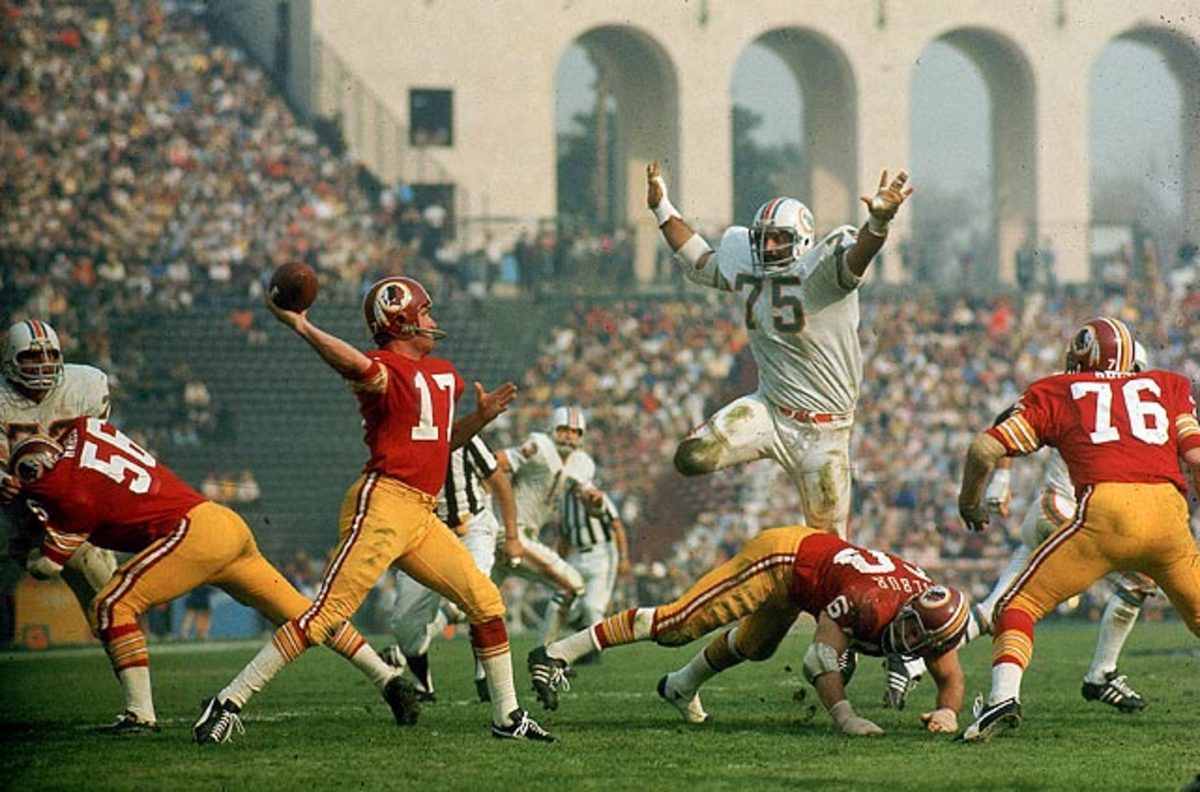
When new Redskins coach George Allen arrived in 1971, he decided he couldn't wait for young talent to develop. He traded away many draft picks -- including seven to his former team, the Rams -- in exchange for six veterans. The team got its nickname for its reliance on veteran players, but the old-timers had success. Washington had a winning record in each of Allen's seven seasons and reached the 1973 Super Bowl (losing 14-7 to Miami).
Phi Slamma Jamma
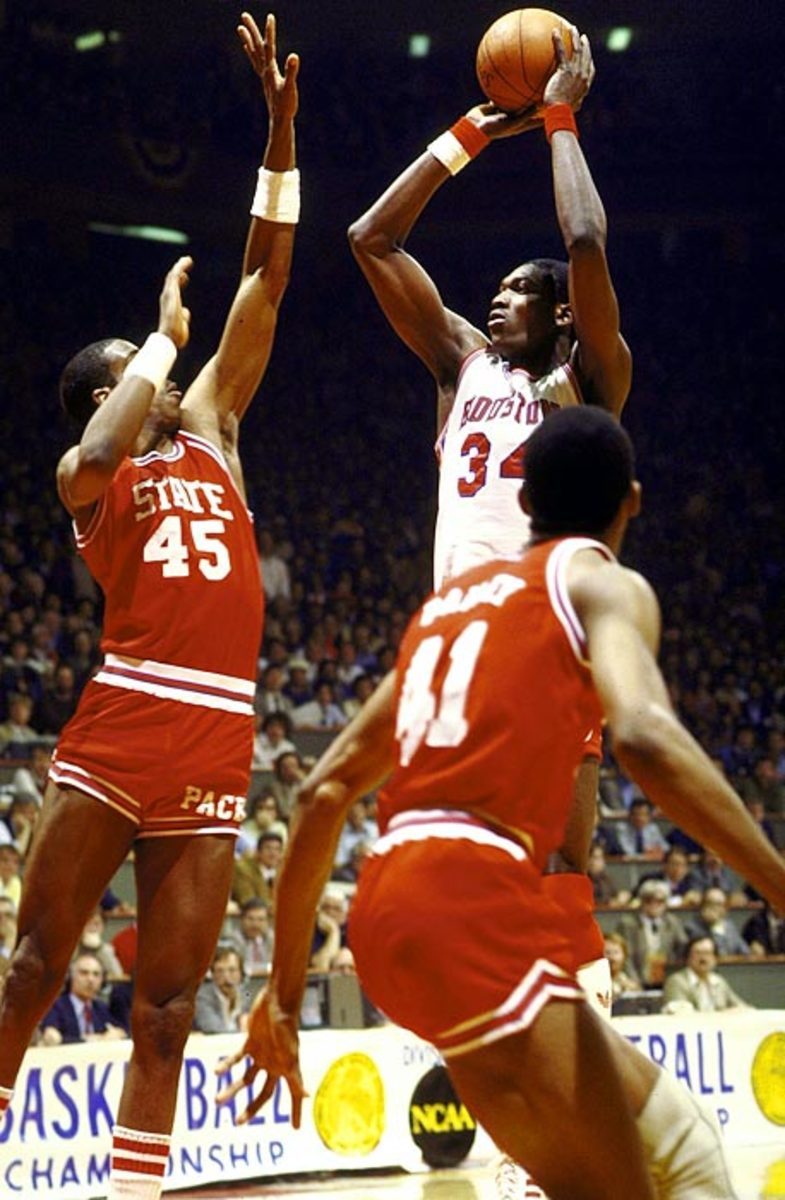
Houston seemed to have one goal: to finish a fast break with a high-flying, thundering dunk. Their awe-inspiring jams earned the squad a nickname that combined college Greek life with the slam dunk. The Cougars, featuring Akeem Olajuwon and Clyde Drexler, also suffered one of the NCAA tournament's biggest upsets: a 62-60 loss to Jim Valvano's N.C. State team in the 1983 championship game.
Production Line

Defenses cowered in fear when the Detroit Red Wings' Production Line came to town. Comprised of Gordie Howe, Sid Abel and Ted Lindsay, the trio held the top three spots on the NHL scoring list for the 1950 season.
Purple People Eaters
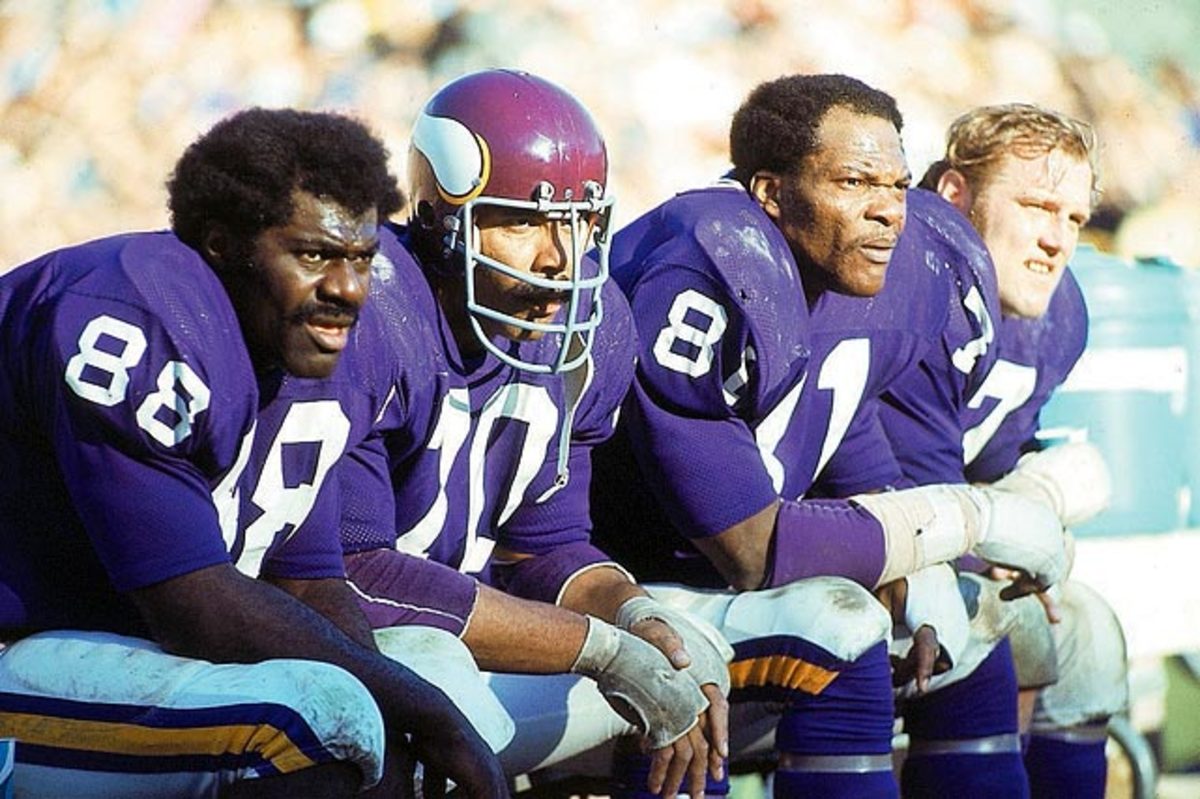
The Vikings' defensive line from the late-1960s to the late-1970s had an unofficial motto: "Meet at the quarterback." Nicknamed after Sheb Wooley's 1958 hit song, the line primarily featured Alan Page, Carl Eller (both Hall of Famers), Jim Marshall and Gary Larsen. Minnesota advanced to the Super Bowl four times between 1970 and 1977 but lost each time.
Rainbow Warriors
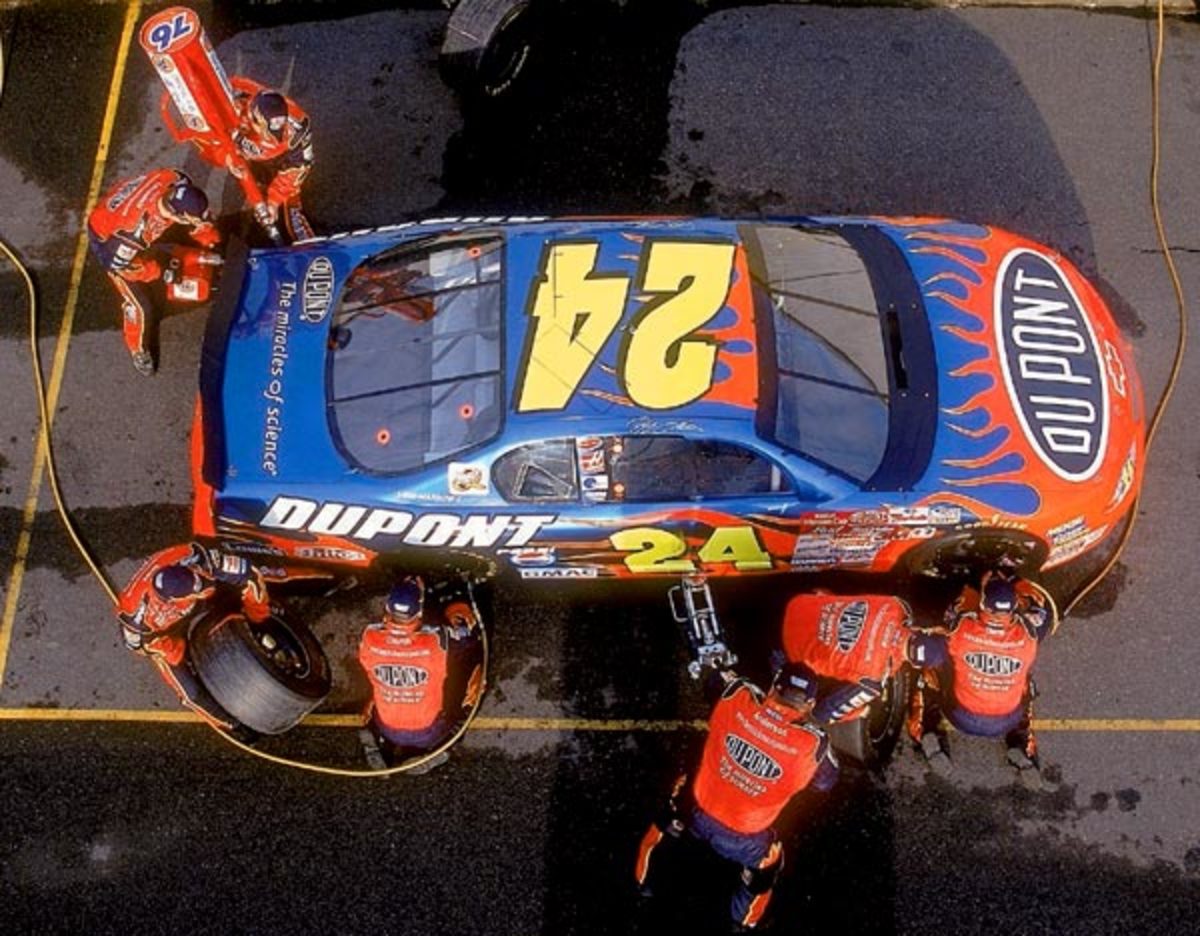
After they began wearing brightly colored uniforms to match the rainbow colors on the No. 24 car, Jeff Gordon's pit crew got a nickname of its own. The team was crucial to Gordon's success, though, as he won four Winston Cup (now Sprint Cup) titles between 1995 and 2001.
Run-T.M.C.
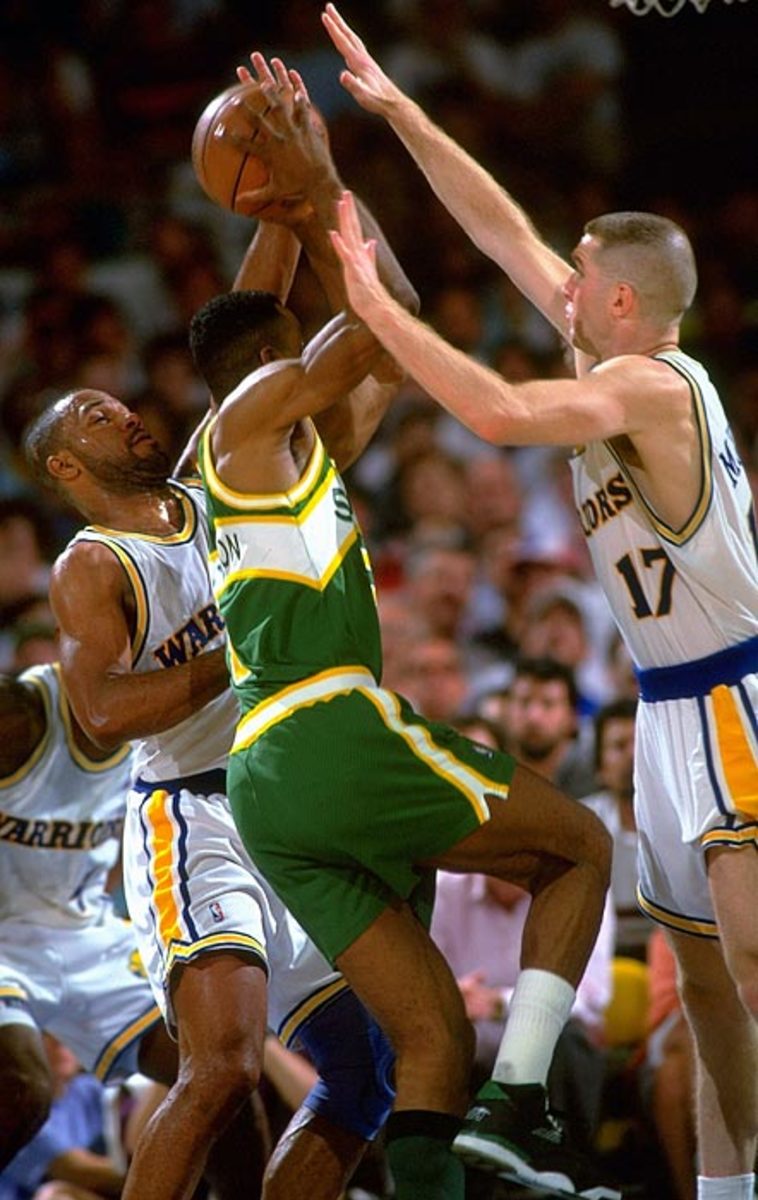
The Warriors' high-scoring trio of Tim Hardaway, Mitch Richmond and Chris Mullin took a nickname inspired by the rap group Run-D.M.C. The group spent two seasons together (from 1989 to 1991) and advanced to the Western Conference semifinals. Don Nelson, looking to complement his fast-breaking offense with a post presence, traded Richmond to the Kings before the 1991-92 season to end the group's run.
Showtime
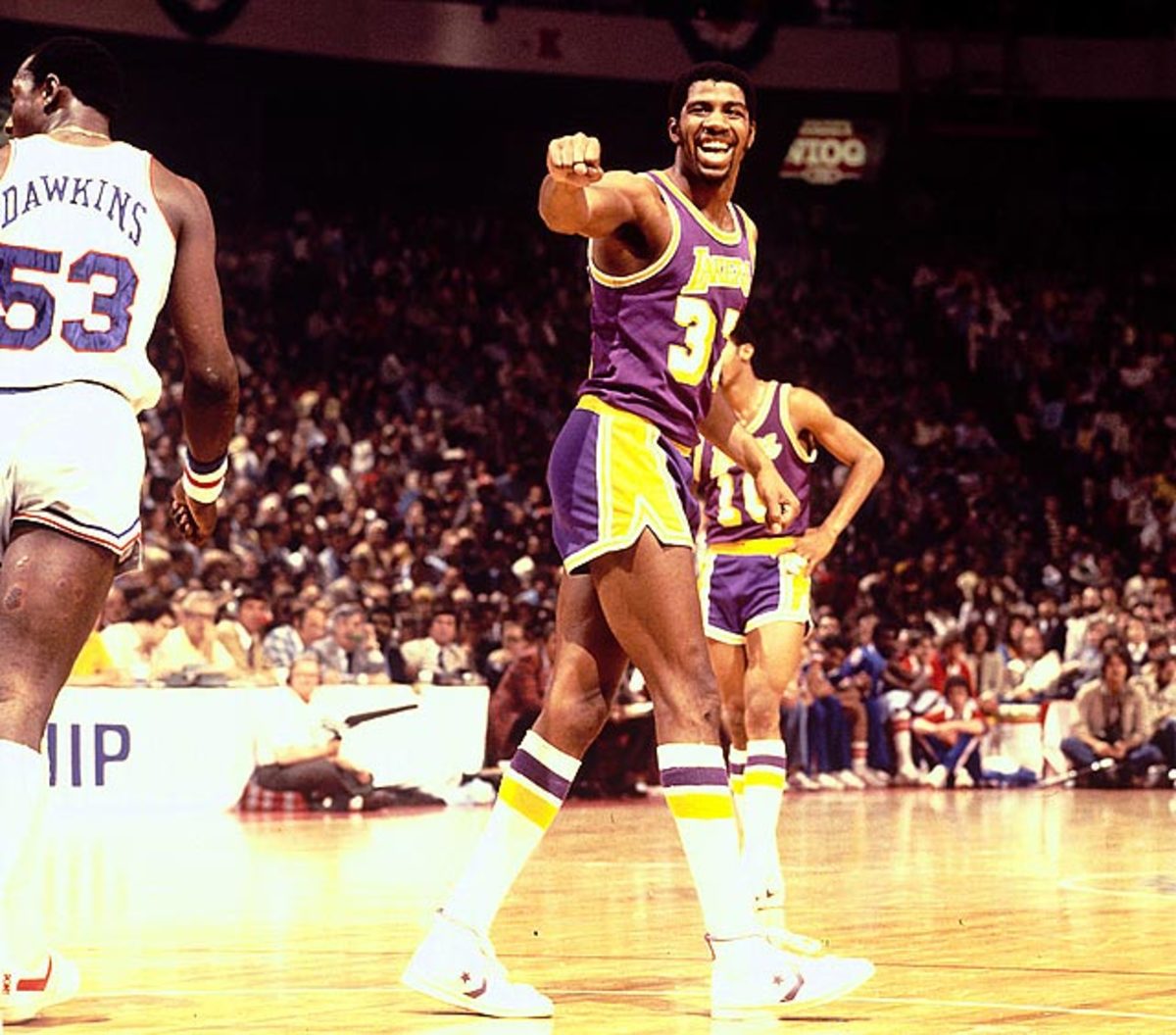
Once Magic Johnson arrived in 1979, the Lakers' high-scoring, fast-breaking ways took off. Joining with Kareem Abdul-Jabbar, James Worthy and others, Johnson guided Los Angeles to five titles in nine seasons. The Lakers also solidified their connection to Hollywood during this time, as home games became must-see events.
Silver Crush
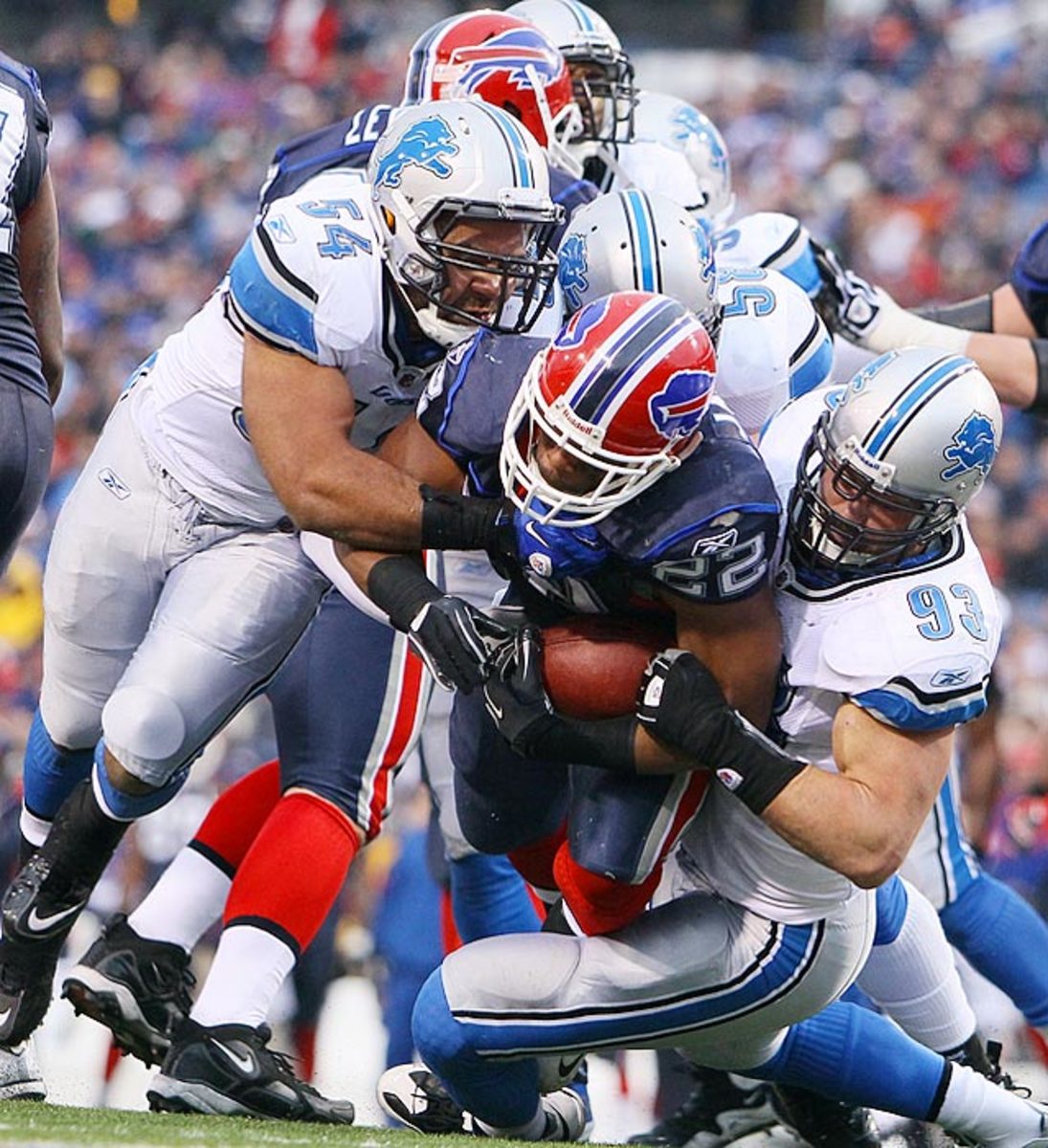
How many group nicknames in sports can lay claim to having their own Facebook page? The Silver Crush can, owing to the moniker bestowed in 2011 to the Detroit Lions defensive line of Ndamukong Suh, Kyle Vanden Bosch and Nick Fairley.
Smurfs
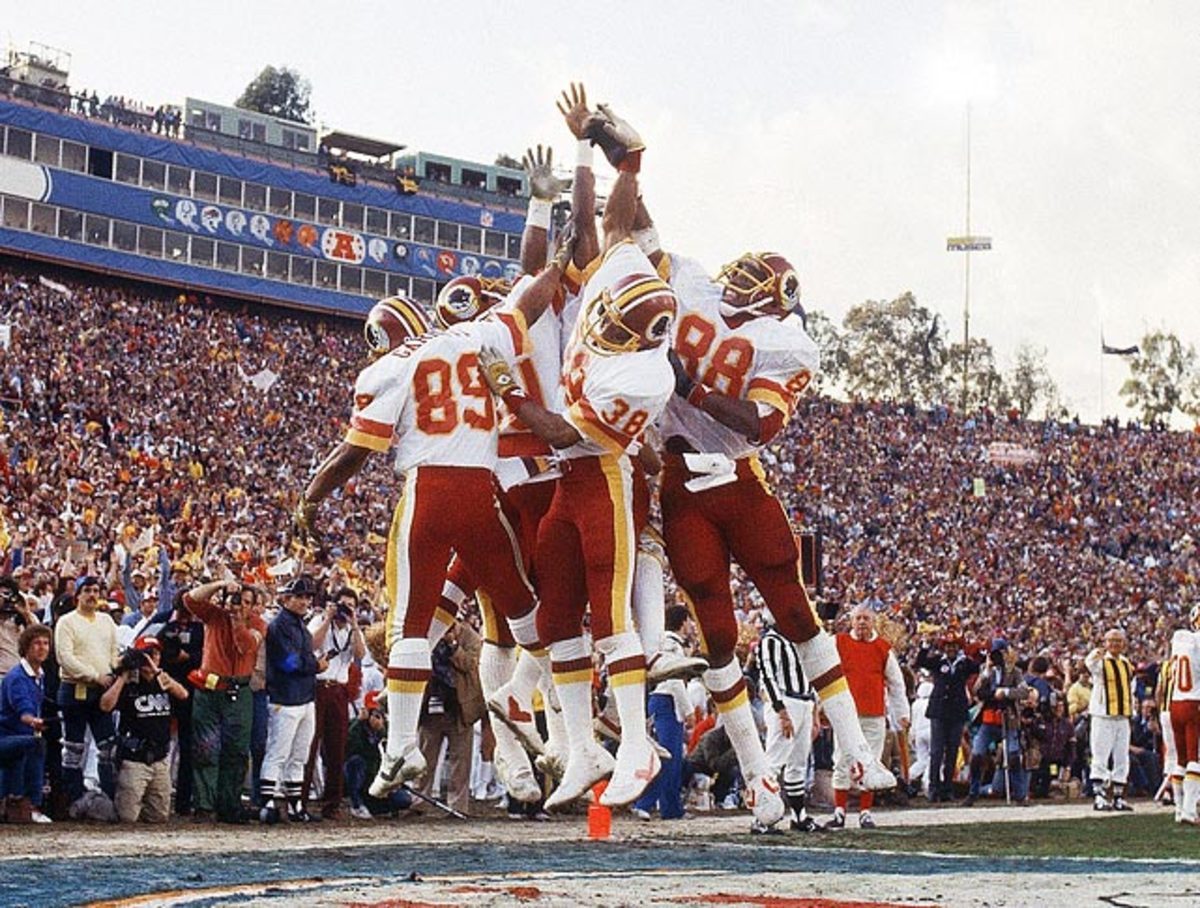
A subset of the Wild Bunch, the Smurfs were a group of diminutive wide receivers for the Redskins in the 1980s. Alvin Garrett (5-7), Virgil "Papa Smurf" Seay (5-8) and Charlie Brown (5-10) helped Washington reach two Super Bowls (winning one) in their time together.
Steel Curtain
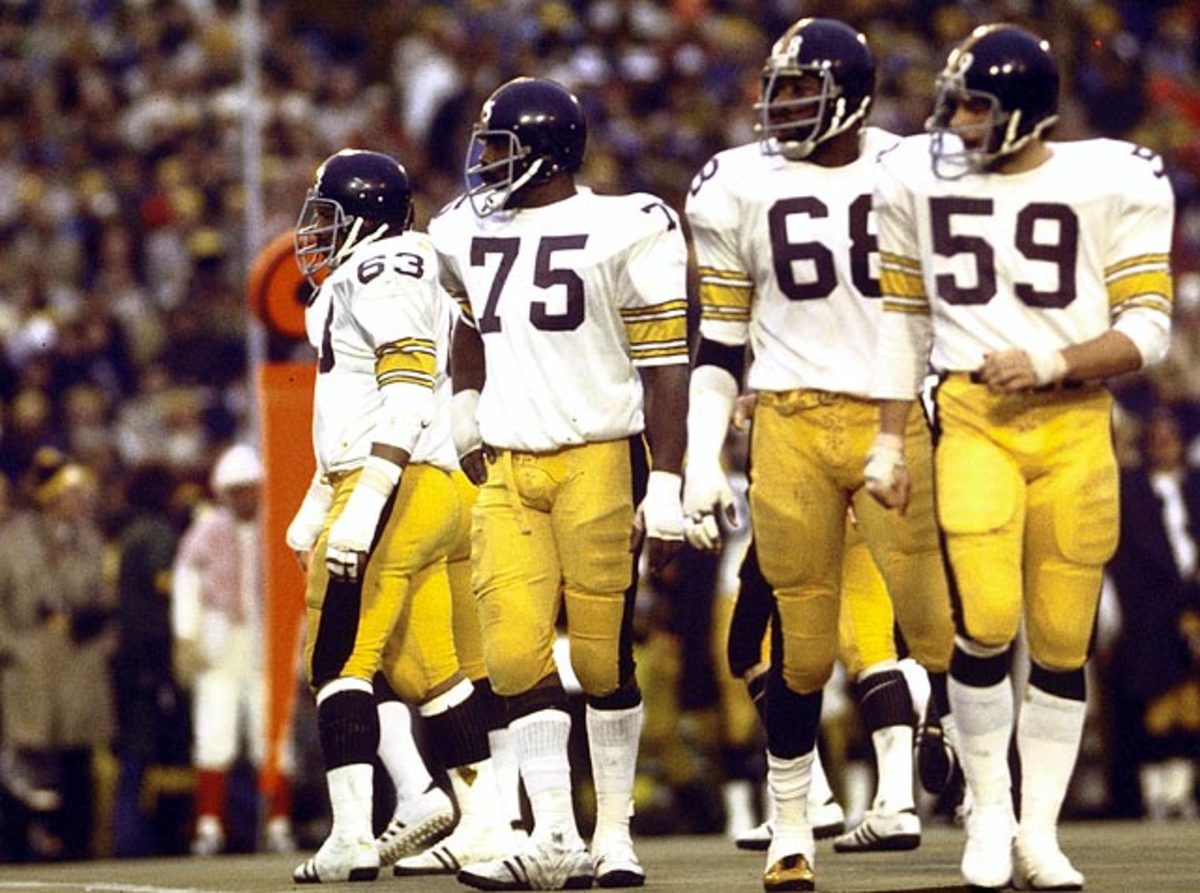
One of the most dominant defenses in NFL history, the Steel Curtain was the nickname of the Pittsburgh defensive line in the 1970s. The Steelers won the Super Bowl in 1975, 1976, 1979 and 1980. During the 1978-79 season, Pittsburgh allowed the third-fewest points in NFL history, giving up only 195 in 16 games. The 1976 Steelers were even better, allowing only 138 points in 14 games.
Thunderchickens
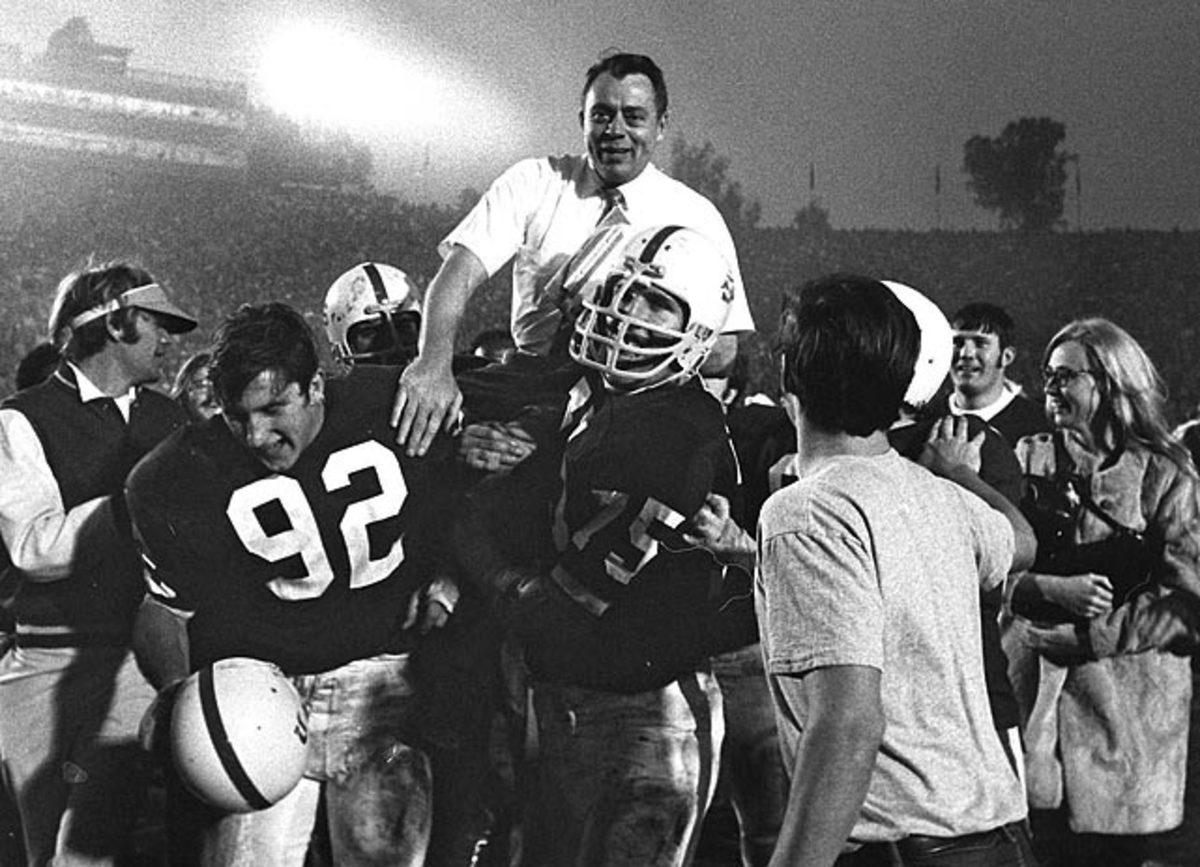
Stanford's answer to USC's Wild Bunch was the name of a motorcycle gang in Montana: the Thunderchickens. Defensive end Pete Lazetich thought the name fit the defensive line in the 1970 preseason, and its use grew from there. The defensive line joined with the offense, led by quarterback Jim Plunkett, to take Stanford to back-to-back Rose Bowl wins.
Whiz Kids
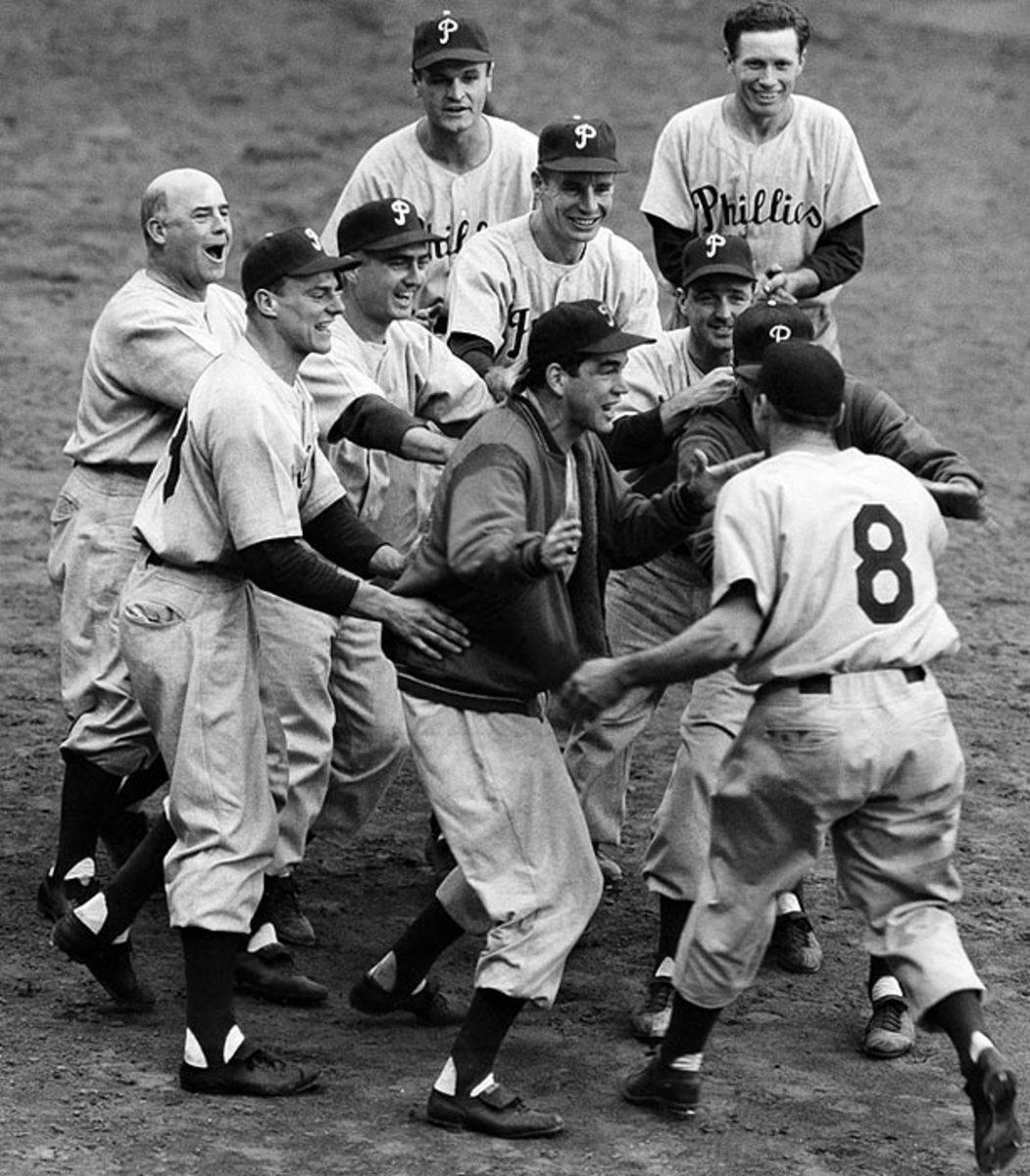
A group of talented home-grown prospects, the Whiz Kids won Philadelphia's first pennant in 35 years in 1950. Robin Roberts, Richie Ashburn, Del Ennis, Granny Hamner, Willie Jones and Curt Simmons excited the Phillies' fans by jumping out to a seven-game lead with 11 games to play. But the team almost gave it away, needing a win on the final game of the season to make the playoffs. The group never matched its initial success, failing to finish above third again.
Wild Bunch
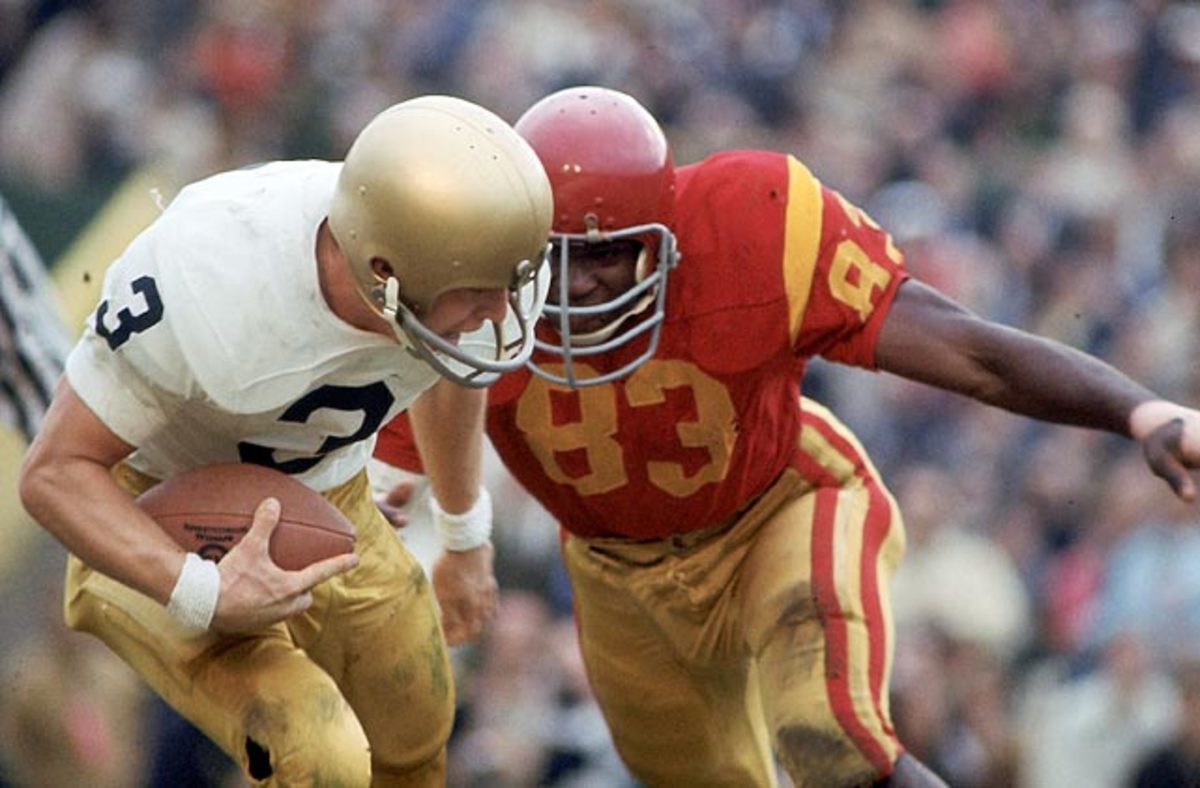
USC rode its rowdy defense to the 1970 Rose Bowl victory. In its regular season finale, the Wild Bunch intercepted UCLA quarterback Dennis Dummit five times and knocked him to the ground at least 12 more in a 14-12 win. The front five of Al Cowlings, Bubba Scott, Charlie Weaver, Jimmy Gunn and Tody Smith attacked the pocket with regularity, pounding quarterbacks along the way. The aggressive defense continued in a 10-3 victory over Michigan in the Rose Bowl.
The Woodies

One of the most dominant doubles teams ever, the Australian duo of Todd Woodbridge and Mark Woodforde won 61 tournaments in their careers (a record since broken by the Bryan brothers), including 11 Grand Slam titles and a gold medal at the 1996 Olympics. The tandem also was inducted into the International Tennis Hall of Fame in 2010. Who would you add to the list. Send suggestions to siwriters@simail.com
